The final program DUMP-2019 is ready. We meet on April 19 in Yekaterinburg
Hello!
On April 19, the DUMP conference will be held for the ninth time in Yekaterinburg. Reports will be delivered in 8 sections: Backend, Frontend, Mobile, Testing and QA, Devops, Design, Science and Management.
The final conference program with the schedule is ready. This year will feature: Nikolay Sverchkov (Evil Martians), Vadim Makeev (HTML Academy), Artemy Ryabinkov (Avito), Alexander Korotayev (Tinkoff.ru), Alexander Denisov (EPAM), Denis Malykh (Yandex), Alexey Kataev (SkyEng) , Alexey Zhukov (Contour), Grigory Savenok (MegaFon), Sergey Krivoy (SEMrush), Peter Fedichev (MIPT, Gero), Alexey Kulakov (Ridero), Anton Semenchenko (COMAQA.by) and 50 more excellent speakers. In addition to reports there will be 4 master classes.
')
There are a few days to buy a ticket for 6000 ₽, from April 1, the price rises. Under the cut all the details.

Remember these stickers? In 2016, we invented them specifically for the conference. This year they will again
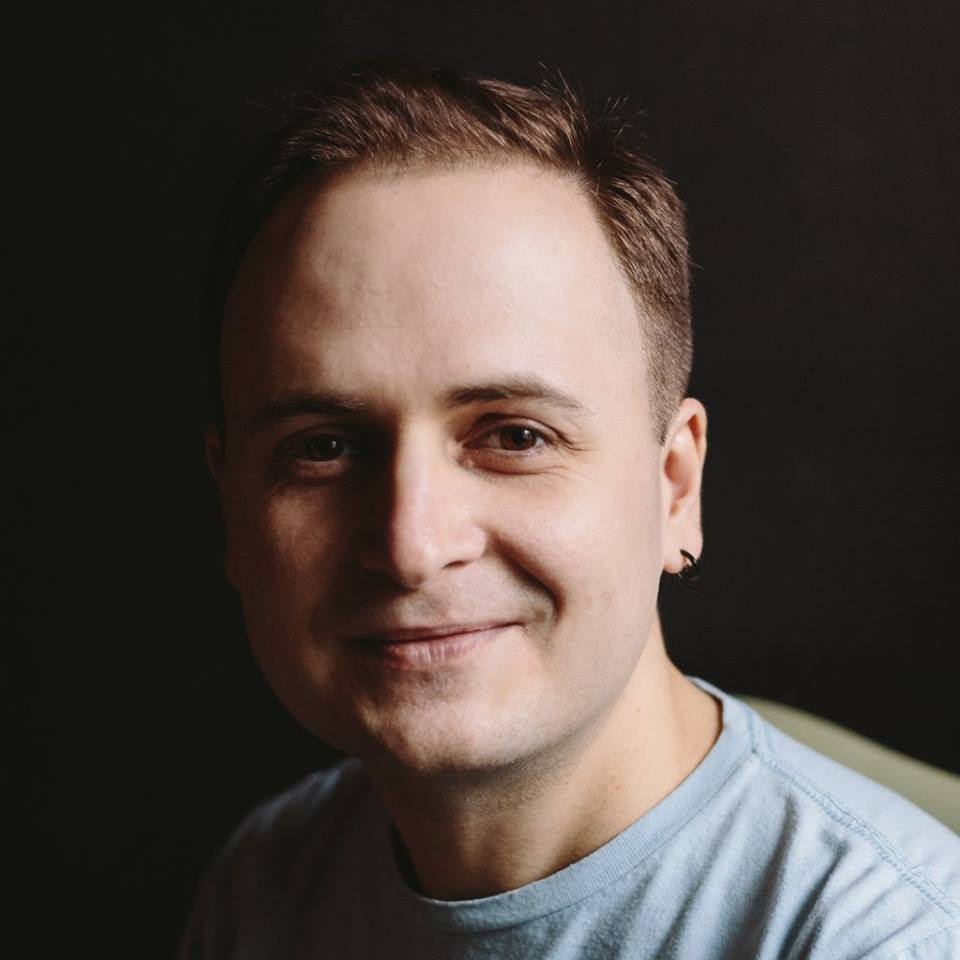 Web evangelist in HTML Academy , community leader Web standards and host of the same-name podcast, organizer of Web Standards Days, city meetings of pitercss_meetup and conference pitercss_conf Vadim Makeev will give a report on web graphics: from creation and export to optimization and insertion.
Web evangelist in HTML Academy , community leader Web standards and host of the same-name podcast, organizer of Web Standards Days, city meetings of pitercss_meetup and conference pitercss_conf Vadim Makeev will give a report on web graphics: from creation and export to optimization and insertion.
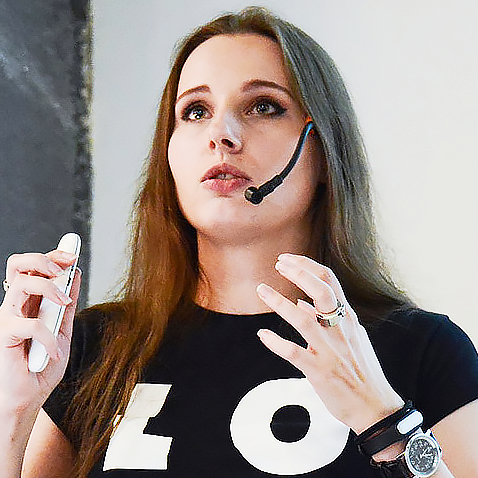 In the development world, controversies on topical issues do not subside over the years: “Tabs or spaces?”, “Should we indent between brackets?”, “Single or double quotes?” Alexander Shinkevich (LOVATA) will share tools and approaches that can be used to stop arguing over trifles.
In the development world, controversies on topical issues do not subside over the years: “Tabs or spaces?”, “Should we indent between brackets?”, “Single or double quotes?” Alexander Shinkevich (LOVATA) will share tools and approaches that can be used to stop arguing over trifles.
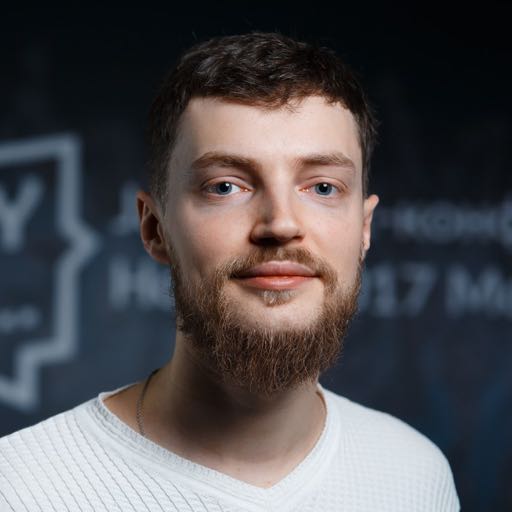 Using the example of writing games, Alexander Korotaev (Tinkoff.ru) will tell you how to draw 2D quickly, but simply, without bothering you with matrices and complex APIs. In the report, Alexander will consider the concepts of pre-rendering, shaders, and using a React-tree for fast drawing on a plane.
Using the example of writing games, Alexander Korotaev (Tinkoff.ru) will tell you how to draw 2D quickly, but simply, without bothering you with matrices and complex APIs. In the report, Alexander will consider the concepts of pre-rendering, shaders, and using a React-tree for fast drawing on a plane.
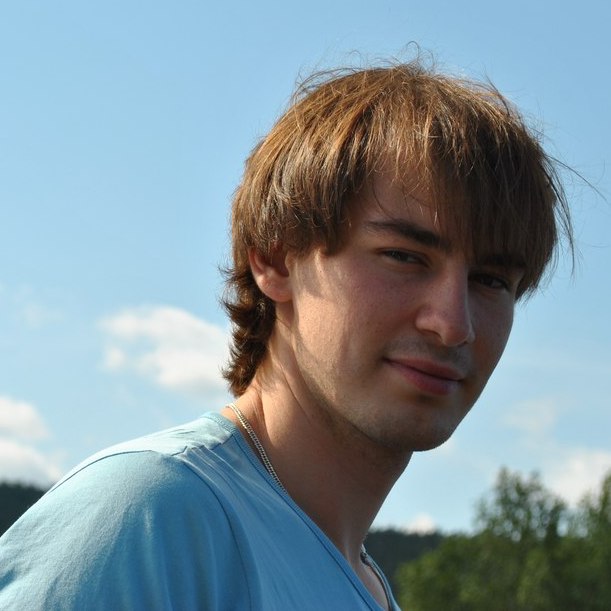 Artyom Kuzvesov will consider what technologies are currently available for mobile development, visually compare how identical applications look and work, one of which is written in React Native and the other in Cordova, and tells about the strengths and weaknesses of each of the solutions.
Artyom Kuzvesov will consider what technologies are currently available for mobile development, visually compare how identical applications look and work, one of which is written in React Native and the other in Cordova, and tells about the strengths and weaknesses of each of the solutions.
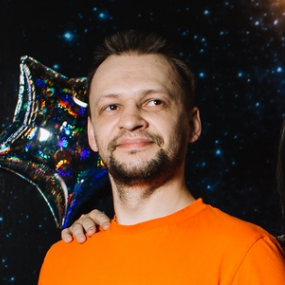 Frontend team leader at SKB LAB, Sergey Tsvetkov (Yekaterinburg) will give a presentation on Angular Elements: using the example of the Angular framework, it will tell you how to decompose a monolithic web application using HTML5 Web Components.
Frontend team leader at SKB LAB, Sergey Tsvetkov (Yekaterinburg) will give a presentation on Angular Elements: using the example of the Angular framework, it will tell you how to decompose a monolithic web application using HTML5 Web Components.
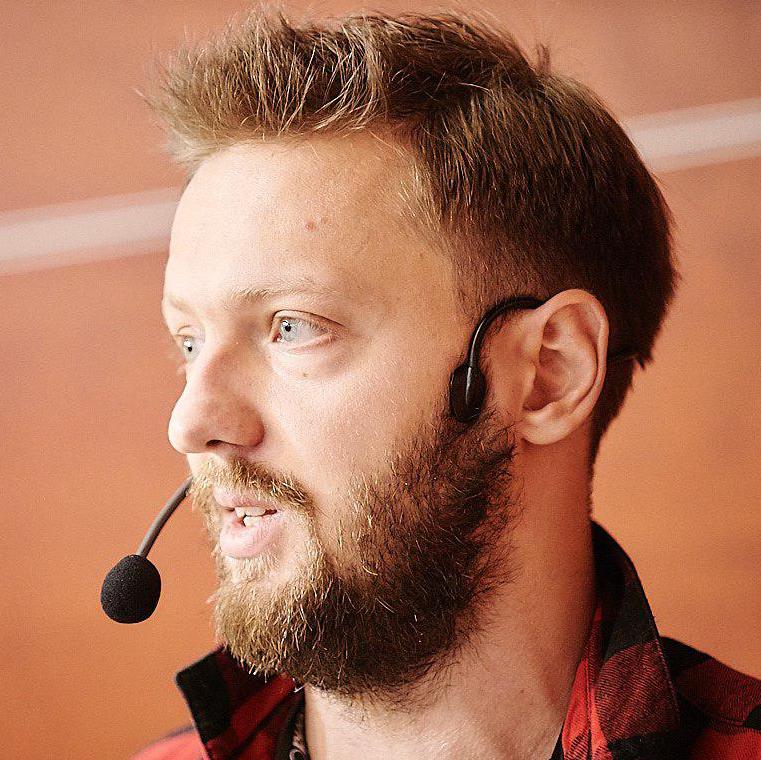 Vitaly Dmitriev (404 Group) will reveal the basic principles of the reactive approach to programming, list useful tools and, most importantly, explain how they can help create easily expandable applications if you change your thinking when developing to reactive.
Vitaly Dmitriev (404 Group) will reveal the basic principles of the reactive approach to programming, list useful tools and, most importantly, explain how they can help create easily expandable applications if you change your thinking when developing to reactive.
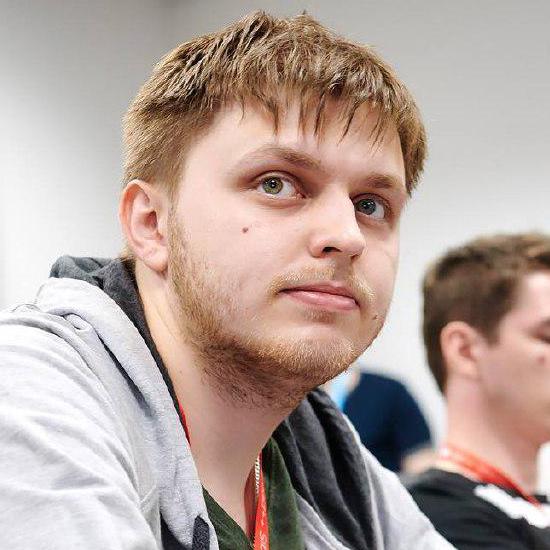 In articles and reports from cool developers often talk about autotests. “It's easy, it's cool,” they say. However, when you start writing them yourself, you do not feel either lightness or coolness, only pain. Frontend Lead in the company N1.RU Maxim Sosnov will teach how to write the correct tests.
In articles and reports from cool developers often talk about autotests. “It's easy, it's cool,” they say. However, when you start writing them yourself, you do not feel either lightness or coolness, only pain. Frontend Lead in the company N1.RU Maxim Sosnov will teach how to write the correct tests.
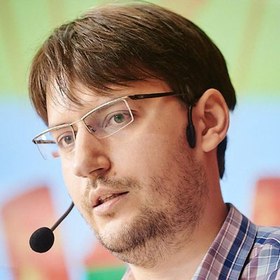 Andrei Nagikh (Inetra) will tell you what a real rake they collected when porting a large application to C ++ to the browser. In the report: what are the tools and what they can; how to forward objects between JS and Wasm; what problems arise and how to solve them; what can wasm and what he cannot; how to see C ++ code in the browser debugger; how much faster wasm js.
Andrei Nagikh (Inetra) will tell you what a real rake they collected when porting a large application to C ++ to the browser. In the report: what are the tools and what they can; how to forward objects between JS and Wasm; what problems arise and how to solve them; what can wasm and what he cannot; how to see C ++ code in the browser debugger; how much faster wasm js.
 Using the example of a backend project in Evil Martians, Nikolay Sverchkov will tell you all about the practical side of working with serverless: how difficult it is to start, how much documentation and tutorials, whether there is support for generally accepted standards, how to test locally, how much it costs, what language is better to use, what stack tasks are most relevant.
Using the example of a backend project in Evil Martians, Nikolay Sverchkov will tell you all about the practical side of working with serverless: how difficult it is to start, how much documentation and tutorials, whether there is support for generally accepted standards, how to test locally, how much it costs, what language is better to use, what stack tasks are most relevant.
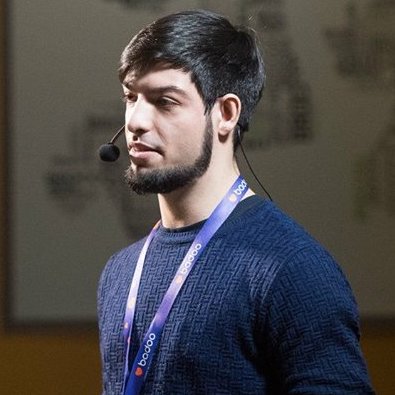 Software Engineer in Avito Artemy Ryabinkov will talk about the advantages and disadvantages of the basic tools that are used when working with Postgres in Go. It will affect the nuances that need to be taken into account when your services run inside the Kubernetes clouds. He will also talk about Avito’s experience in providing a database of product developers.
Software Engineer in Avito Artemy Ryabinkov will talk about the advantages and disadvantages of the basic tools that are used when working with Postgres in Go. It will affect the nuances that need to be taken into account when your services run inside the Kubernetes clouds. He will also talk about Avito’s experience in providing a database of product developers.
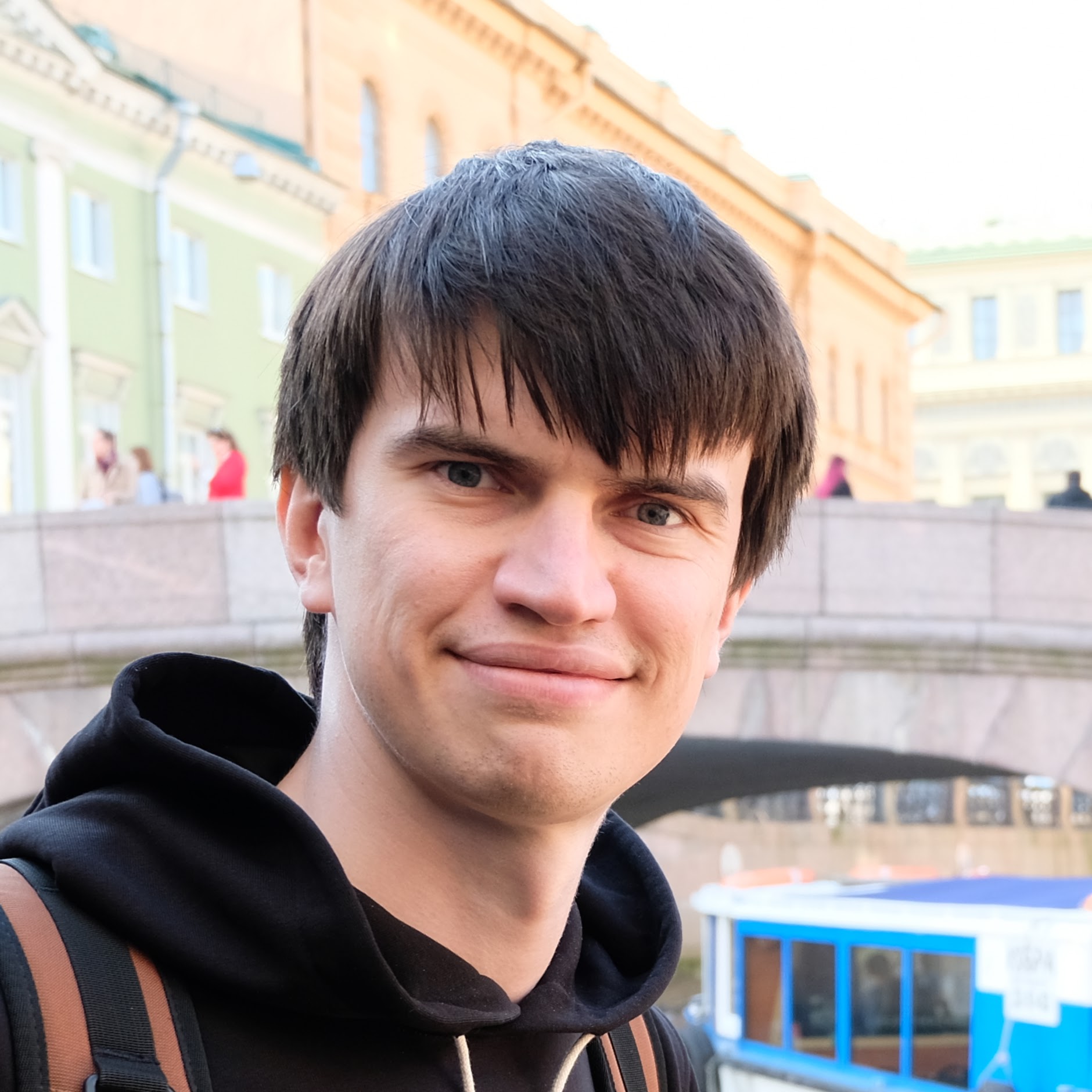 Recently, Redis 5 has a new data type - streams, this is the implementation of ideas from the popular message broker Kafka. Denis Kataev (Tinkoff.ru) will explain why streams are needed, how they differ from regular lines, what is the difference between Kafka and Redis streams, and also tells about the “pitfalls” that lie in wait for you.
Recently, Redis 5 has a new data type - streams, this is the implementation of ideas from the popular message broker Kafka. Denis Kataev (Tinkoff.ru) will explain why streams are needed, how they differ from regular lines, what is the difference between Kafka and Redis streams, and also tells about the “pitfalls” that lie in wait for you.
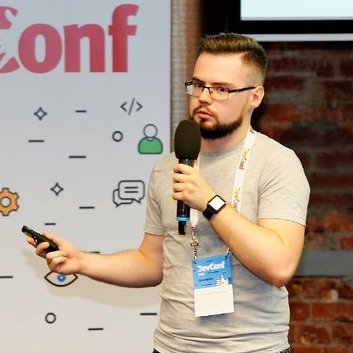 Dmitry Tsepelev from Evil Martians will tell you how to think by graphs: in the report he will review the query language itself, tell you its advantages and disadvantages, and then present recommendations for developing a graph scheme. After the report, there is every chance to step on the rake less often when developing the scheme of its first API in GraphQL, and to understand how GraphQL differs from the usual REST API.
Dmitry Tsepelev from Evil Martians will tell you how to think by graphs: in the report he will review the query language itself, tell you its advantages and disadvantages, and then present recommendations for developing a graph scheme. After the report, there is every chance to step on the rake less often when developing the scheme of its first API in GraphQL, and to understand how GraphQL differs from the usual REST API.

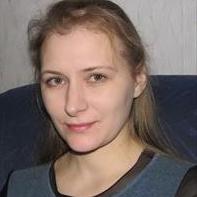 Victor Kandoba and Svetlana Zavyalova (Contour) will tell you how they automated support using speech technologies: where to start implementing speech technologies and how to sell it to business; what is the voice service, what are the tools; what to develop independently, and what is better to reuse, in what order; how to choose scenarios and conduct experiments.
Victor Kandoba and Svetlana Zavyalova (Contour) will tell you how they automated support using speech technologies: where to start implementing speech technologies and how to sell it to business; what is the voice service, what are the tools; what to develop independently, and what is better to reuse, in what order; how to choose scenarios and conduct experiments.
 Sergey Dolganov (Evil Martians) will talk about an alternative, “contact” approach to building APIs for dependent applications, talk about the library that they have created and are using to develop and maintain integrations. On the prototype of a solution in Ruby, as well as on work on cross-platform implementation on Rust and Go.
Sergey Dolganov (Evil Martians) will talk about an alternative, “contact” approach to building APIs for dependent applications, talk about the library that they have created and are using to develop and maintain integrations. On the prototype of a solution in Ruby, as well as on work on cross-platform implementation on Rust and Go.
 Yuri Kerbitskov (Ak Bars Digital Technologies) will tell you what application domains are and what they are for, explains how to work with dynamically loadable assemblies from .NET Core. It also introduces new techniques for isolating assemblies, loading / unloading and safety aspects. After the talk, you will understand better how .NET Core works under the hood.
Yuri Kerbitskov (Ak Bars Digital Technologies) will tell you what application domains are and what they are for, explains how to work with dynamically loadable assemblies from .NET Core. It also introduces new techniques for isolating assemblies, loading / unloading and safety aspects. After the talk, you will understand better how .NET Core works under the hood.
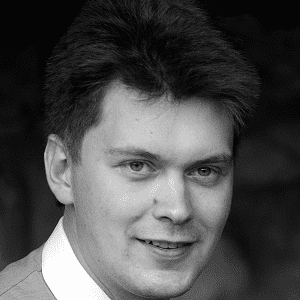 Andrei Borodin and Vladimir Leskov ( Yandex ) will talk about the development of WAL-G, the PostgreSQL RDBMS on Go. They will talk about the features of the platform when interacting with a large open source database and about the community.
Andrei Borodin and Vladimir Leskov ( Yandex ) will talk about the development of WAL-G, the PostgreSQL RDBMS on Go. They will talk about the features of the platform when interacting with a large open source database and about the community.
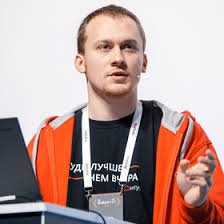 The Vostok project is the tools and practices that have proven themselves within the Contour company, which the project participants make part of OpenSource. Grigory Koshelev, Lead Software Engineer in Kontura, will tell about the part of the East that provides centralized telemetry processing.
The Vostok project is the tools and practices that have proven themselves within the Contour company, which the project participants make part of OpenSource. Grigory Koshelev, Lead Software Engineer in Kontura, will tell about the part of the East that provides centralized telemetry processing.
 Vitaly Semyachkin (JetStyle) will share his experience with voice assistants and smart speakers Alex and Alice: what features and features do they have, what rakes can they expect, how can they be heroically overcome and in general, how can we prepare the whole story. Using the example of an experimental case with a “smart office conversation”, Vitaly will tell you how they worked with Alice, how users were identified, tied the iron box to a specific Yandex station, and what else you would like to receive from the Yandex.Dialogia platform to become a full-fledged IoT center like Alexa.
Vitaly Semyachkin (JetStyle) will share his experience with voice assistants and smart speakers Alex and Alice: what features and features do they have, what rakes can they expect, how can they be heroically overcome and in general, how can we prepare the whole story. Using the example of an experimental case with a “smart office conversation”, Vitaly will tell you how they worked with Alice, how users were identified, tied the iron box to a specific Yandex station, and what else you would like to receive from the Yandex.Dialogia platform to become a full-fledged IoT center like Alexa.

All reports of last year’s conference can be viewed on YouTube channel.
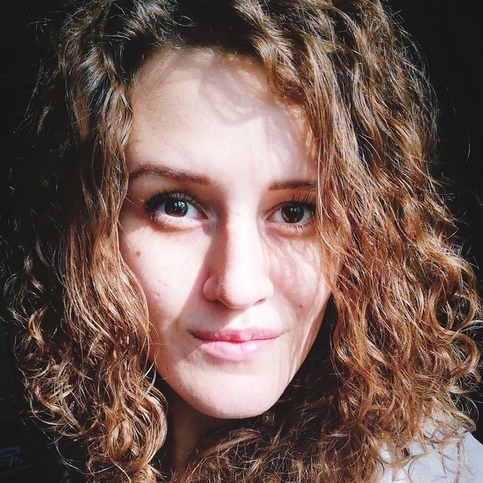 Anastasia Kalashnikova, a practicing psychologist and HR in IT, will give practical recommendations on how to conduct an interview: how to evaluate, what questions to ask, and which questions to keep with you; how to predict whether a person will fit into a team; how to understand whether a candidate will be able to work independently and whether he will develop; whether to collect a reference for the candidate.
Anastasia Kalashnikova, a practicing psychologist and HR in IT, will give practical recommendations on how to conduct an interview: how to evaluate, what questions to ask, and which questions to keep with you; how to predict whether a person will fit into a team; how to understand whether a candidate will be able to work independently and whether he will develop; whether to collect a reference for the candidate.
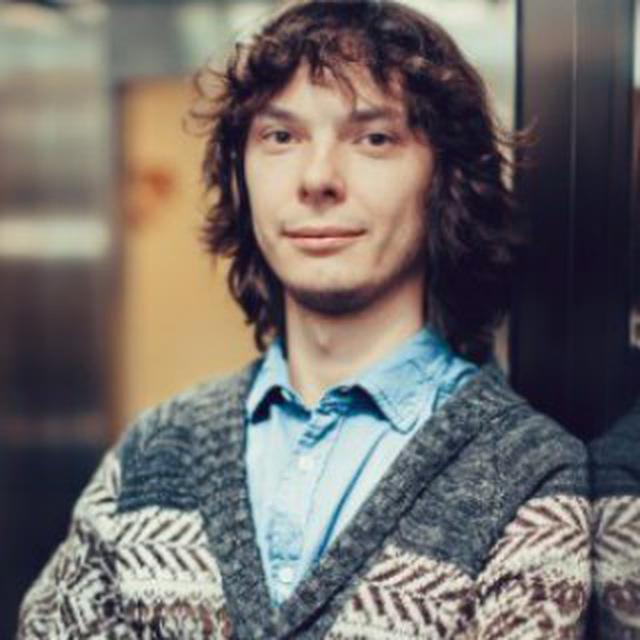 Alexey Zhukov from Kontur will tell you how they test hypotheses in Kontur before releasing products and features. In the report: customer development as a model for building a growth-team, life examples about creating and developing products for the b2b market, what a corporate entrepreneur should be able to do.
Alexey Zhukov from Kontur will tell you how they test hypotheses in Kontur before releasing products and features. In the report: customer development as a model for building a growth-team, life examples about creating and developing products for the b2b market, what a corporate entrepreneur should be able to do.
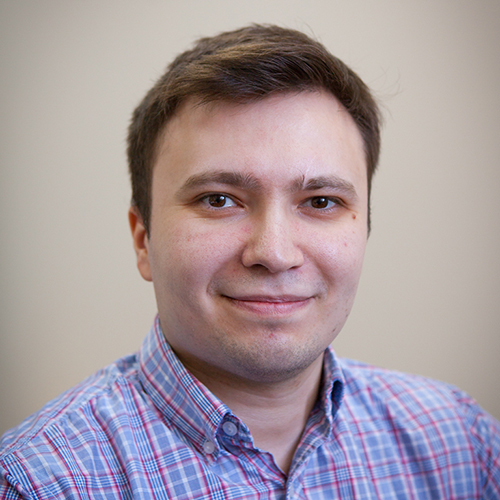 The founder of the Dolgushev and Starozhilov agency , Alexey Dolgushev, based on the experience of running DevRel projects in 10 companies and 10 years of observing the IT industry, will explain how this trendy DevRel will help people learn about your company so that they want to work with you.
The founder of the Dolgushev and Starozhilov agency , Alexey Dolgushev, based on the experience of running DevRel projects in 10 companies and 10 years of observing the IT industry, will explain how this trendy DevRel will help people learn about your company so that they want to work with you.
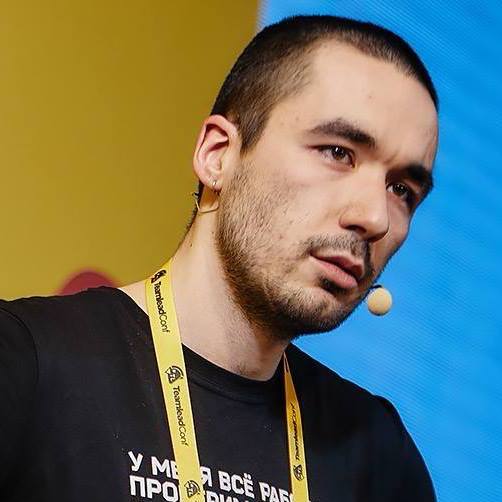 Alexey Kataev, Head of Development at SkyEng, will talk about time management for team leaders. Alexey will share his experience in the fight against procrastination, methods of automation, delegation, a bunch of checklists and life hacks on how to keep up with everything.
Alexey Kataev, Head of Development at SkyEng, will talk about time management for team leaders. Alexey will share his experience in the fight against procrastination, methods of automation, delegation, a bunch of checklists and life hacks on how to keep up with everything.
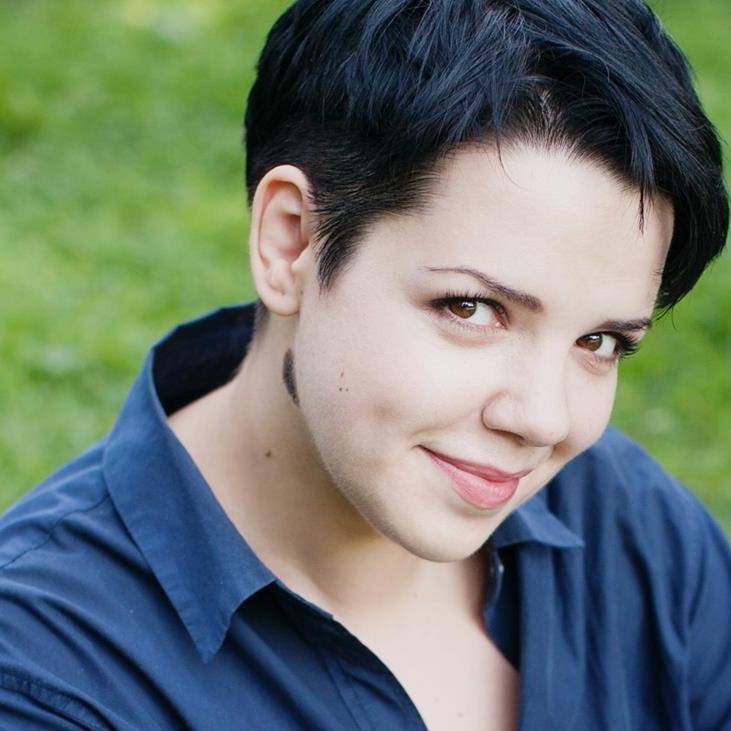 Product Manager Svetlana Ayupova will tell you about the hypothesis testing cycle in SkyEng - product team No. 1 in Russia: where does the product cycle for testing hypothesis, hypothesis, decision begin, confirm the value and reduce the economy, test in battle, conclusions.
Product Manager Svetlana Ayupova will tell you about the hypothesis testing cycle in SkyEng - product team No. 1 in Russia: where does the product cycle for testing hypothesis, hypothesis, decision begin, confirm the value and reduce the economy, test in battle, conclusions.
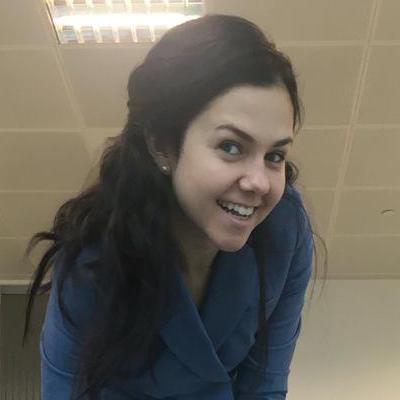 The founder of bulkina.tech, Natalya Bulkina, will talk about problem-free “problem” interviews: how to communicate with the client in a high-quality way in order to check the viability of your business idea. Natalia will also analyze the main mistakes that can lead to incorrect results.
The founder of bulkina.tech, Natalya Bulkina, will talk about problem-free “problem” interviews: how to communicate with the client in a high-quality way in order to check the viability of your business idea. Natalia will also analyze the main mistakes that can lead to incorrect results.
 There are a lot of training materials that tell how to delegate, and what happens if you do not. However, looking back, you can see how even the most experienced managers neglect delegation. Why it happens? How to choose between "make yourself" and give the performer? Ivan Sukhov will explain why delegating is a bad option.
There are a lot of training materials that tell how to delegate, and what happens if you do not. However, looking back, you can see how even the most experienced managers neglect delegation. Why it happens? How to choose between "make yourself" and give the performer? Ivan Sukhov will explain why delegating is a bad option.
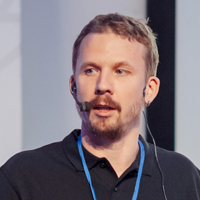 Alexander Denisov , a leading developer at EPAM Systems and the leader of the Google Developers Group from Nizhny Novgorod, will devote his report to Flutter, Google's upcoming trendy SDK. Why you should pay attention to Flutter, what has changed with the advent of this SDK, and how the selection criteria between the cross platform and the native have changed.
Alexander Denisov , a leading developer at EPAM Systems and the leader of the Google Developers Group from Nizhny Novgorod, will devote his report to Flutter, Google's upcoming trendy SDK. Why you should pay attention to Flutter, what has changed with the advent of this SDK, and how the selection criteria between the cross platform and the native have changed.
 Pavel Strelchenko from HeadHunter will explain why creating plug-ins in Android Studio is not at all difficult, and it can also be a very useful tool. Pavel will introduce a plug-in express course, using the example of his own experience in HH, will tell you what problems you may encounter and how to solve them.
Pavel Strelchenko from HeadHunter will explain why creating plug-ins in Android Studio is not at all difficult, and it can also be a very useful tool. Pavel will introduce a plug-in express course, using the example of his own experience in HH, will tell you what problems you may encounter and how to solve them.
 The report by Evgeny Krivobokov , Avito’s lead developer, will be useful to those who are tired of the slow build of the project on Android and IDE brakes. Clip lifehacks for overclocking the assembly and IDE from easy to hard. There will also be practical tips on setting up and optimizing gradle remote cache and collecting metrics on your own without buying Gradle Enterprise.
The report by Evgeny Krivobokov , Avito’s lead developer, will be useful to those who are tired of the slow build of the project on Android and IDE brakes. Clip lifehacks for overclocking the assembly and IDE from easy to hard. There will also be practical tips on setting up and optimizing gradle remote cache and collecting metrics on your own without buying Gradle Enterprise.
 Android Teamlead Nikita Rusin will tell how they in KODE solve the problem of using different technologies stack on several projects with the help of the “base project” - the starting point of each product, which has increased the team's efficiency. Nikita will share how to create a basic project in his company, what are the advantages and disadvantages of this approach, and what to do after you have implemented it.
Android Teamlead Nikita Rusin will tell how they in KODE solve the problem of using different technologies stack on several projects with the help of the “base project” - the starting point of each product, which has increased the team's efficiency. Nikita will share how to create a basic project in his company, what are the advantages and disadvantages of this approach, and what to do after you have implemented it.
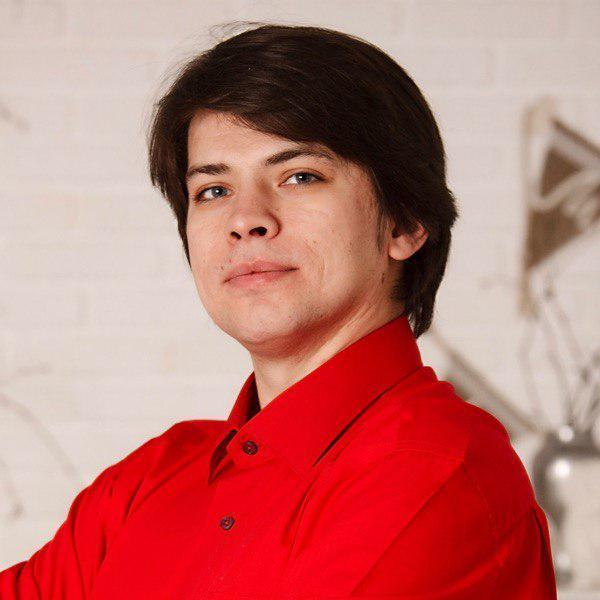 Denis Malykh, head of application development for mobile platforms from Yandex 's Yekaterinburg office, will share his invaluable experience in bringing legacy projects to life. Stumbled code and projects taken from outsourcers: how to deal with them. His examples are based on iOS development, but the experience is certainly universal and will be useful both to developers and managers.
Denis Malykh, head of application development for mobile platforms from Yandex 's Yekaterinburg office, will share his invaluable experience in bringing legacy projects to life. Stumbled code and projects taken from outsourcers: how to deal with them. His examples are based on iOS development, but the experience is certainly universal and will be useful both to developers and managers.
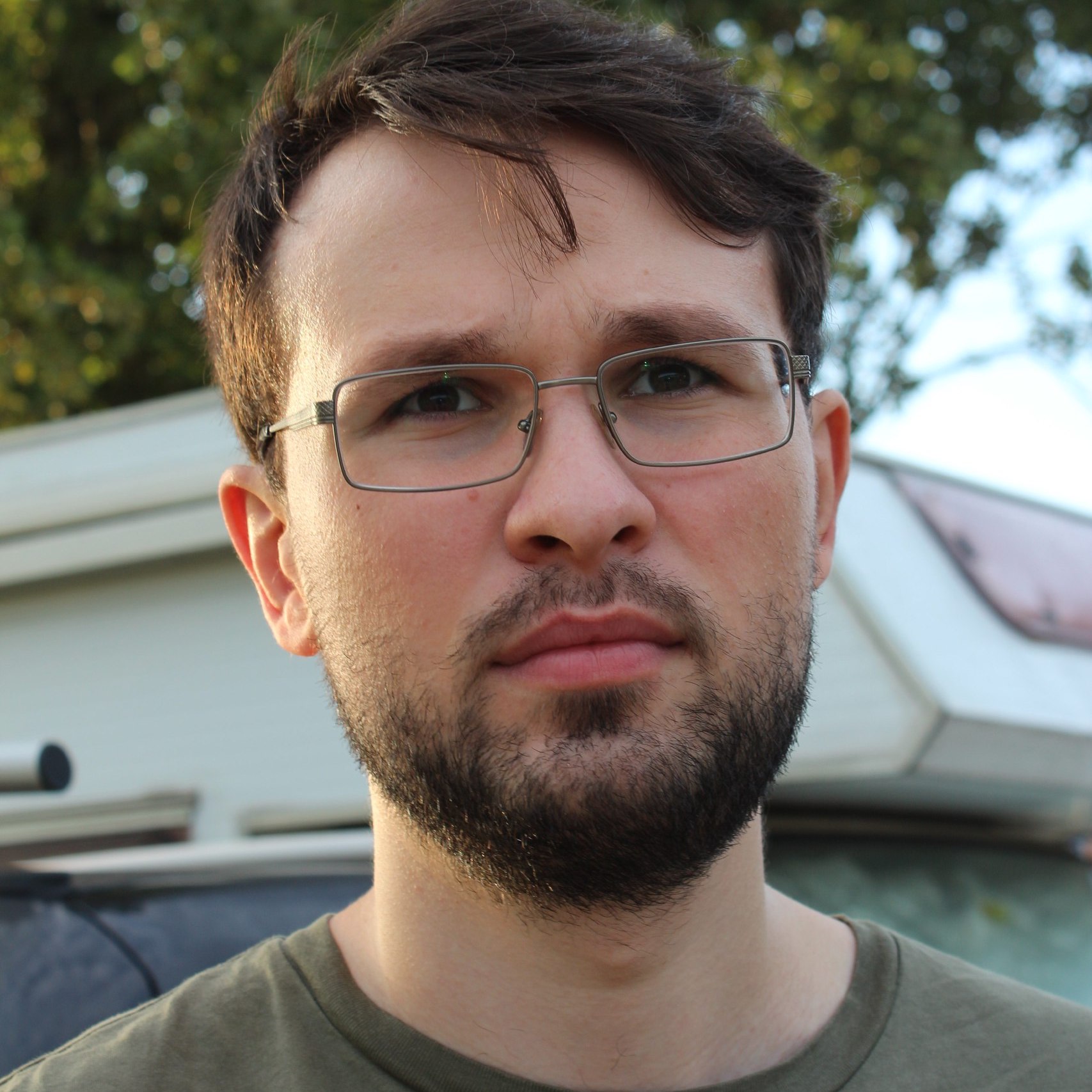 TechLead Vladimir Tebloev will tell TechLead about the growth diseases that Sberbank has encountered in mobile development. How to cope with the fact that at some point in time a large number of people start working on a single application, and how not to lose control over the system, even if it has grown to the scale of an enterprise.
TechLead Vladimir Tebloev will tell TechLead about the growth diseases that Sberbank has encountered in mobile development. How to cope with the fact that at some point in time a large number of people start working on a single application, and how not to lose control over the system, even if it has grown to the scale of an enterprise.
 For iOS developers, we have a report with the intriguing title “The Dark Side of iOS Development,” which deals with the Private API. Nikolai Volosatov, senior developer of the Yandex unit in Minsk, will lift the veil over the hidden system API and, based on his team’s experience, will give recommendations on the feasibility and consequences of using it.
For iOS developers, we have a report with the intriguing title “The Dark Side of iOS Development,” which deals with the Private API. Nikolai Volosatov, senior developer of the Yandex unit in Minsk, will lift the veil over the hidden system API and, based on his team’s experience, will give recommendations on the feasibility and consequences of using it.
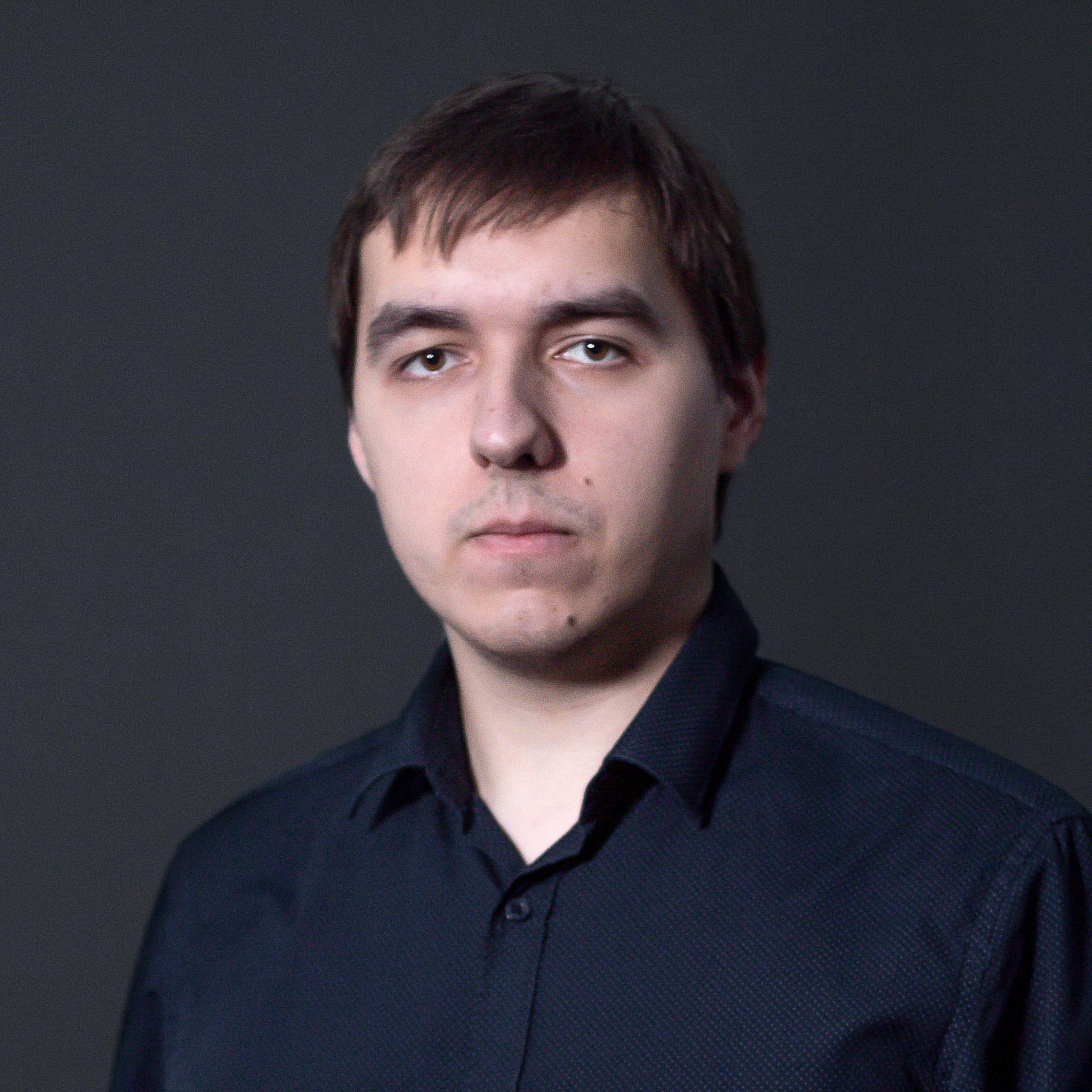 Writing your own rules for Lint is painful: mainly because there is almost no information available on how to do this. Igor Talankin from Tinkoff will share practical tips on how to write, debug and test your own checks for Android Lint. It will also show that such checks can get rid of “stupid” bugs and shorten the testing time.
Writing your own rules for Lint is painful: mainly because there is almost no information available on how to do this. Igor Talankin from Tinkoff will share practical tips on how to write, debug and test your own checks for Android Lint. It will also show that such checks can get rid of “stupid” bugs and shorten the testing time.
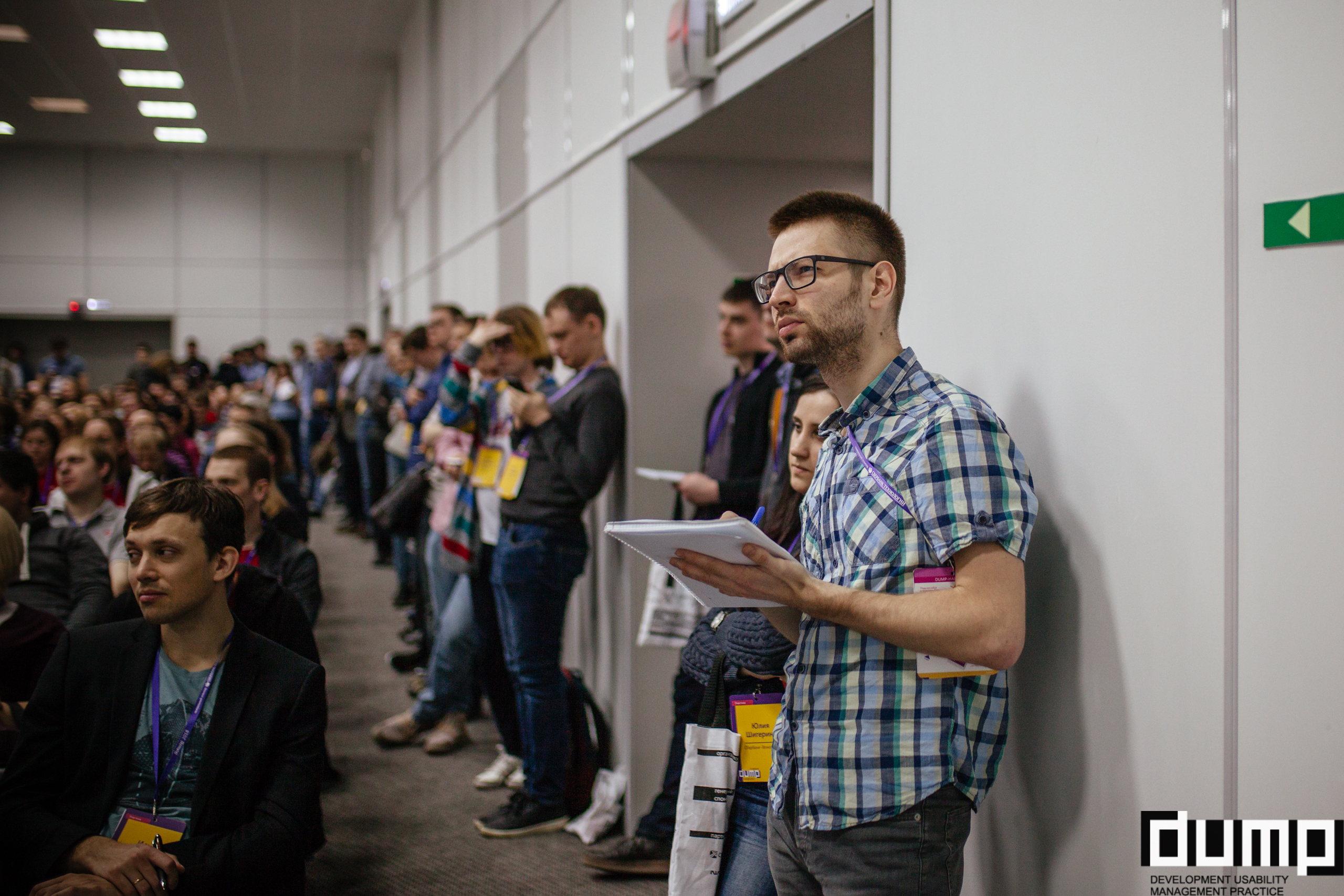
 QA Lead at 2GIS Lidiya Soshkina using the example of the 2GIS mobile application will show how their prioritization system works. The report will be useful to anyone who has not yet automated everything and is forced to cope with a large amount of manual regression testing. On the report you will receive a practical guide on the prioritization of test cases.
QA Lead at 2GIS Lidiya Soshkina using the example of the 2GIS mobile application will show how their prioritization system works. The report will be useful to anyone who has not yet automated everything and is forced to cope with a large amount of manual regression testing. On the report you will receive a practical guide on the prioritization of test cases.
 Anton Semenchenko , the founder of the community of specialists in the field of test automation COMAQA.BY, will explain whether the BDD approach imposes architectural restrictions on the frontend and backend test automation solutions.
Anton Semenchenko , the founder of the community of specialists in the field of test automation COMAQA.BY, will explain whether the BDD approach imposes architectural restrictions on the frontend and backend test automation solutions.
 Anna Bogolyubova will tell how in the Point they solve the problem of unfulfilled technical debt: when bugs and minor improvements are accumulated, but there is no time allocated for their completion, because there are always more priority tasks. This experience can be applied everywhere, in any team of any workflow, even in personal life.
Anna Bogolyubova will tell how in the Point they solve the problem of unfulfilled technical debt: when bugs and minor improvements are accumulated, but there is no time allocated for their completion, because there are always more priority tasks. This experience can be applied everywhere, in any team of any workflow, even in personal life.
 Technical QA lead in RealtimeBoard Anton Necheukhin will tell how to make a reliable load test that will take into account all the nuances and even those about which we still do not know. The report contains, among other things, the overcoming of technical difficulties, the experience of loading using WebSocket connections. The approach itself can be used for various load testing tools and service implementation options.
Technical QA lead in RealtimeBoard Anton Necheukhin will tell how to make a reliable load test that will take into account all the nuances and even those about which we still do not know. The report contains, among other things, the overcoming of technical difficulties, the experience of loading using WebSocket connections. The approach itself can be used for various load testing tools and service implementation options.
 Ivan Shelomentsev, Testing Specialist in the Contour, will talk about how to load the CPU at nominal load using NUnit 3.10.1. instead of buying expensive iron, and explain the main points that should be considered when testing concurrency.
Ivan Shelomentsev, Testing Specialist in the Contour, will talk about how to load the CPU at nominal load using NUnit 3.10.1. instead of buying expensive iron, and explain the main points that should be considered when testing concurrency.
 In the days of DevOps, the roles of testers and QA specialists are not entirely clear. Alexey Lapaev (Tinkoff.ru) will look into the future of the profession and will think about how to approach the issue of quality so as not to drop out of the rhythm of development of the development sphere. Alexey will share his ideas where to evolve from a conditional tester.
In the days of DevOps, the roles of testers and QA specialists are not entirely clear. Alexey Lapaev (Tinkoff.ru) will look into the future of the profession and will think about how to approach the issue of quality so as not to drop out of the rhythm of development of the development sphere. Alexey will share his ideas where to evolve from a conditional tester.
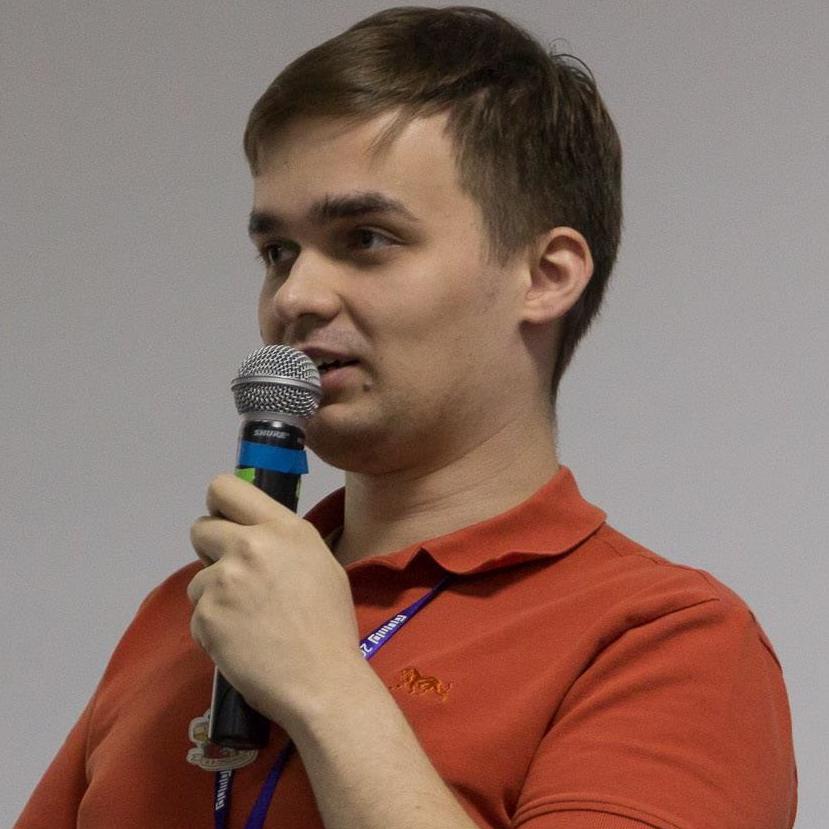 Vitaly Roshchupkin ( Contour ) will tell you how they write all autotests before the release of features (without autotesters). Vitaly will explain what the tester needs to do in order to develop such a development culture. And what can be done to destroy it. Technomyas will not be a report on psychology and communication with people.
Vitaly Roshchupkin ( Contour ) will tell you how they write all autotests before the release of features (without autotesters). Vitaly will explain what the tester needs to do in order to develop such a development culture. And what can be done to destroy it. Technomyas will not be a report on psychology and communication with people.
 Section program director Dmitry Yakin will hold managerial fights. Management fights are a format that gives you the opportunity to rehearse episodes: how to talk to your boss about salary increases or how to abandon your boring task. We will lose several episodes and consider what was necessary to say and what was superfluous. You can participate or just watch.
Section program director Dmitry Yakin will hold managerial fights. Management fights are a format that gives you the opportunity to rehearse episodes: how to talk to your boss about salary increases or how to abandon your boring task. We will lose several episodes and consider what was necessary to say and what was superfluous. You can participate or just watch.
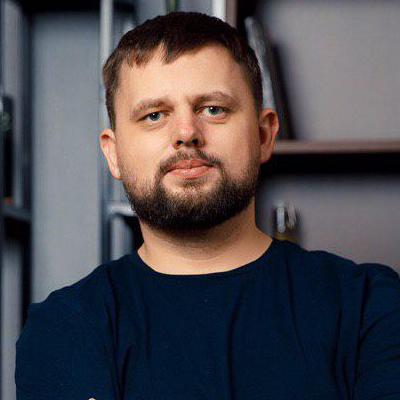 Ruslan Serkin (DataArt) will tell you what serverless is and eat it, discuss the main problems you may encounter during development, share your experience and practices on how to avoid major mistakes when starting development using serverless technologies.
Ruslan Serkin (DataArt) will tell you what serverless is and eat it, discuss the main problems you may encounter during development, share your experience and practices on how to avoid major mistakes when starting development using serverless technologies.
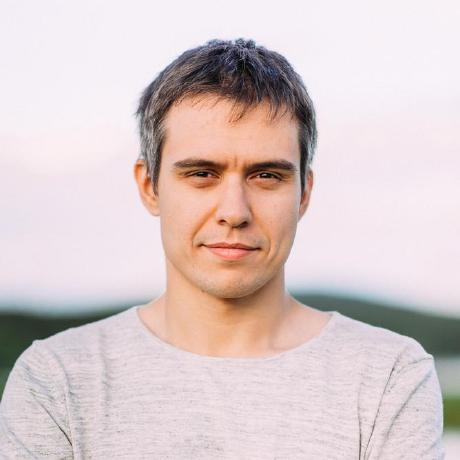 Director of the Ekaterinburg Web Studio Flag Mikhail Radionov will tell you how and why they wrote their CI in the Laravel ecosystem to work with many different small projects. And answer the question "is it worth it to write your CI for a web studio?"
Director of the Ekaterinburg Web Studio Flag Mikhail Radionov will tell you how and why they wrote their CI in the Laravel ecosystem to work with many different small projects. And answer the question "is it worth it to write your CI for a web studio?"
 The Contour company Elasticsearch has been deployed for a very long time, and the amount of data in it approaches one petabyte. Engineer programmer in Kontur Vladimir Leela will tell you why they love elastic, how it helps the company and why you should love it. Vladimir will tell you about the organization of the process, transport of logs, the technical details of building such a cluster, frequent errors, and about the benefits of all this.
The Contour company Elasticsearch has been deployed for a very long time, and the amount of data in it approaches one petabyte. Engineer programmer in Kontur Vladimir Leela will tell you why they love elastic, how it helps the company and why you should love it. Vladimir will tell you about the organization of the process, transport of logs, the technical details of building such a cluster, frequent errors, and about the benefits of all this.
 Evgeny Fomenko ( Megafon ) will tell about the experience of changing the implementation approach: from releases to fast track. In the report: implementation in the conditions of large-scale architectural transformation, high-speed implementation of changes in the distributed infrastructure of the company, ways to achieve a rapid implementation cycle, quality and automation of testing under continuous implementation, the impact of continuous deployment on operational performance.
Evgeny Fomenko ( Megafon ) will tell about the experience of changing the implementation approach: from releases to fast track. In the report: implementation in the conditions of large-scale architectural transformation, high-speed implementation of changes in the distributed infrastructure of the company, ways to achieve a rapid implementation cycle, quality and automation of testing under continuous implementation, the impact of continuous deployment on operational performance.
 Viktor Eremchenko ( Miro ) will tell how they approached the process of continuous delivery, how these approaches helped reduce the number of server release rollbacks and how it helps teams quickly and conveniently deliver their functionality to production. The report contains, among other things, real examples of the use of various tools and technical details of the CI / CD process.
Viktor Eremchenko ( Miro ) will tell how they approached the process of continuous delivery, how these approaches helped reduce the number of server release rollbacks and how it helps teams quickly and conveniently deliver their functionality to production. The report contains, among other things, real examples of the use of various tools and technical details of the CI / CD process.
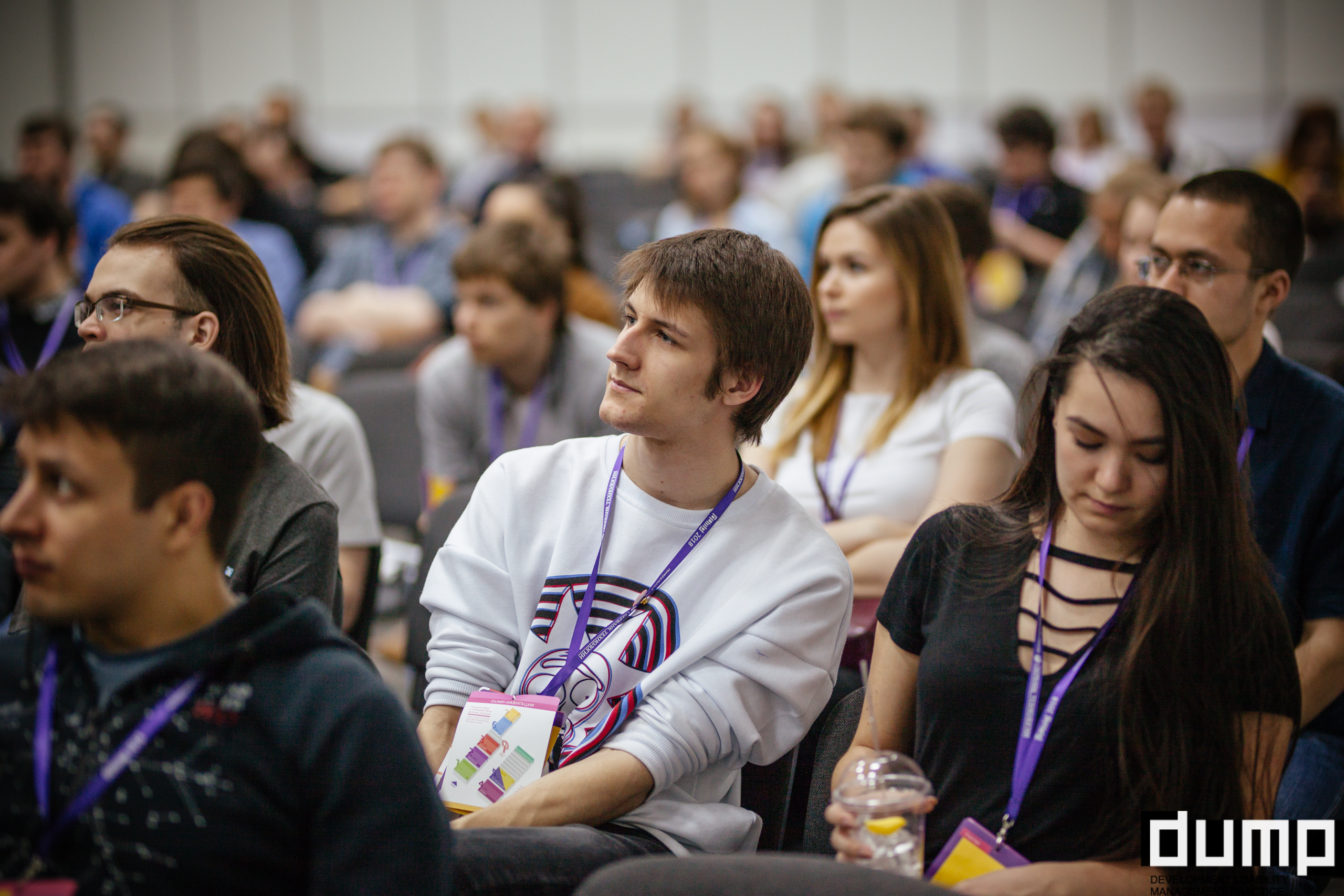
 Gregory Savenok , head of user experience and interfaces at MegaFon, will tell you how to present solutions to designers, protect solutions from the first time and not receive comments about fonts, colors and buttons. Gregory will teach how to work out the objections of the customer, using examples he will show how far changes can take and how this can be avoided. The report will be useful for designers and managers.
Gregory Savenok , head of user experience and interfaces at MegaFon, will tell you how to present solutions to designers, protect solutions from the first time and not receive comments about fonts, colors and buttons. Gregory will teach how to work out the objections of the customer, using examples he will show how far changes can take and how this can be avoided. The report will be useful for designers and managers.
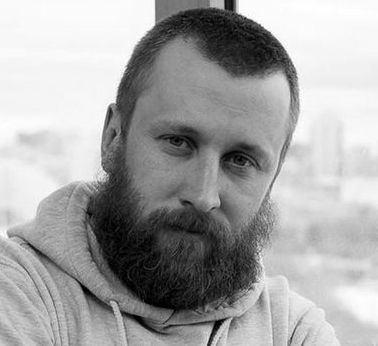 JetStyle director and product director at Ridero Alexey Kulakov believes that feedback is the king of skill, this is the best thing you can learn in life. It can not stop pumping, with it, everything gets better. At the conference, Alexey will teach how to give and receive feedback to a designer.
JetStyle director and product director at Ridero Alexey Kulakov believes that feedback is the king of skill, this is the best thing you can learn in life. It can not stop pumping, with it, everything gets better. At the conference, Alexey will teach how to give and receive feedback to a designer.
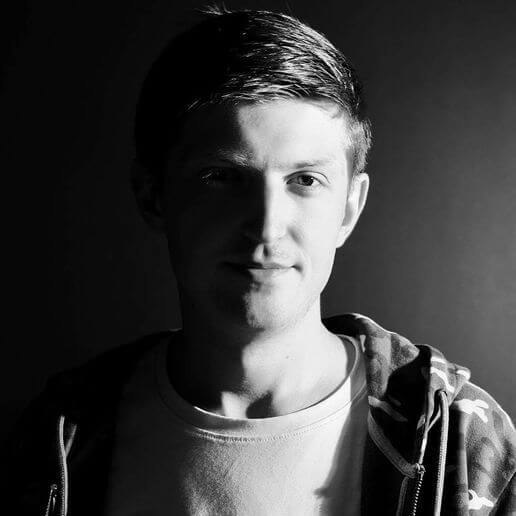 MacPaw art director Dmitry Novikov will tell you how and why you need animation in interfaces, how to avoid mistakes when creating, how to design animations in the simplest way and how to give it to the developer.
MacPaw art director Dmitry Novikov will tell you how and why you need animation in interfaces, how to avoid mistakes when creating, how to design animations in the simplest way and how to give it to the developer.
 You came to work as a designer in a long-existing product. How to care for it, what problems to solve in the first place and are the best solutions always lying in the interface plane? Alena Kirdina (Evil Martians) will tell you how they have put eBay up for business for a year, guided not by interviews, analytics and sudden insights ... but by a list of errors in its usage scenarios.
You came to work as a designer in a long-existing product. How to care for it, what problems to solve in the first place and are the best solutions always lying in the interface plane? Alena Kirdina (Evil Martians) will tell you how they have put eBay up for business for a year, guided not by interviews, analytics and sudden insights ... but by a list of errors in its usage scenarios.
 Alexandra Rudenko (Service Design Bureau) will tell with what research to build a Customer Experience Map, what tasks of designers it solves, and show how you can cover the entire customer path and transitions between online and offline on one map to take into account client contexts when developing products .
Alexandra Rudenko (Service Design Bureau) will tell with what research to build a Customer Experience Map, what tasks of designers it solves, and show how you can cover the entire customer path and transitions between online and offline on one map to take into account client contexts when developing products .
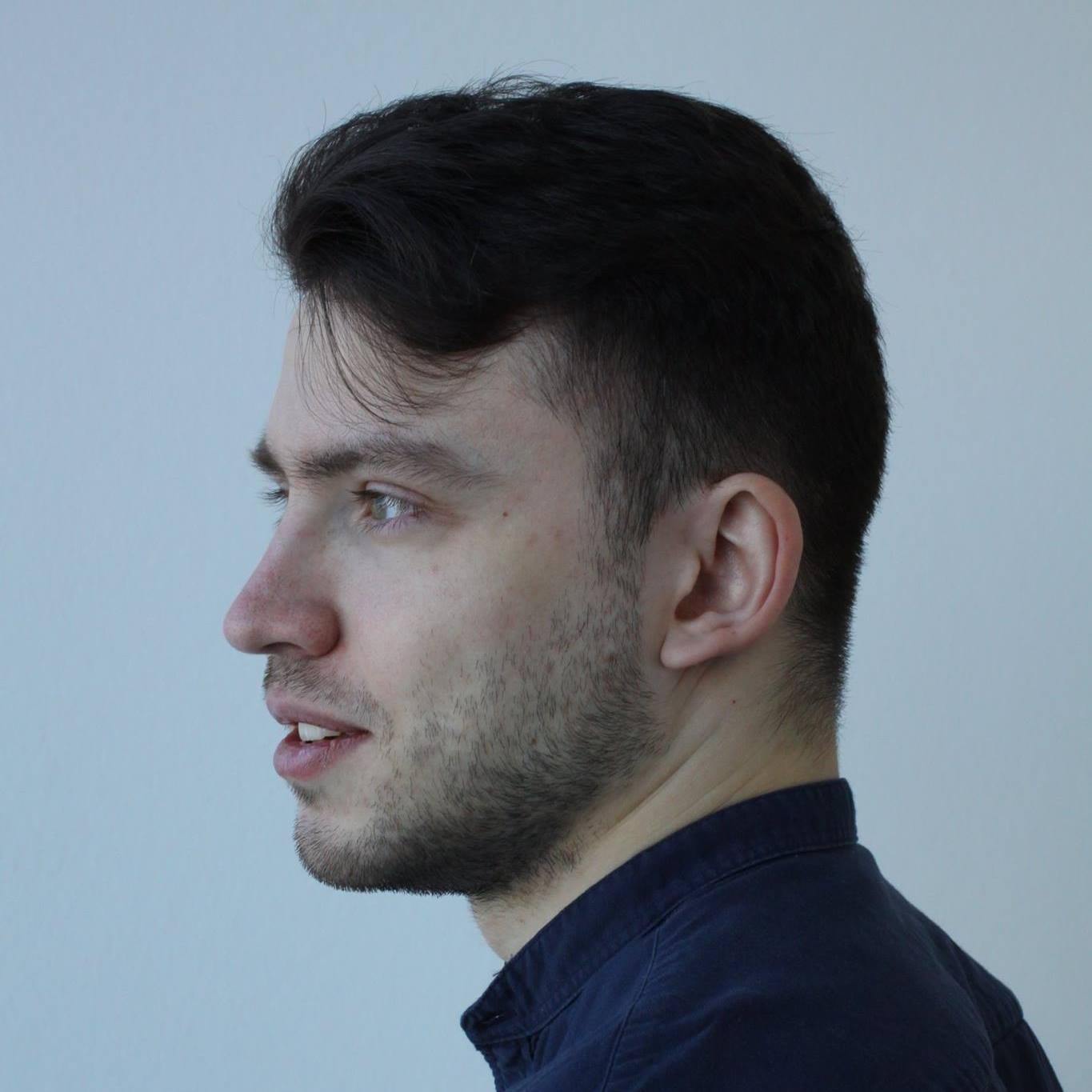 Konstantin Ostroukhov (JetStyle) will tell you what a generative design is and with what tools it is created. Based on examples from your instagram project, the generative design will explain the techniques that it uses. For example, how to use the code to make kinetic typography, interactive animations and generative graphics from a particle system to create patterns.
Konstantin Ostroukhov (JetStyle) will tell you what a generative design is and with what tools it is created. Based on examples from your instagram project, the generative design will explain the techniques that it uses. For example, how to use the code to make kinetic typography, interactive animations and generative graphics from a particle system to create patterns.
 Anastasia Shapovalova (Naumen) will analyze the ways of analyzing clients and explain how it is easiest to peek at their work without developers and sophisticated tools. And also tells you how to start a redesign without a designer, to screw up a little, but in the end stay on a horse and bring back a forgotten feature to life.
Anastasia Shapovalova (Naumen) will analyze the ways of analyzing clients and explain how it is easiest to peek at their work without developers and sophisticated tools. And also tells you how to start a redesign without a designer, to screw up a little, but in the end stay on a horse and bring back a forgotten feature to life.
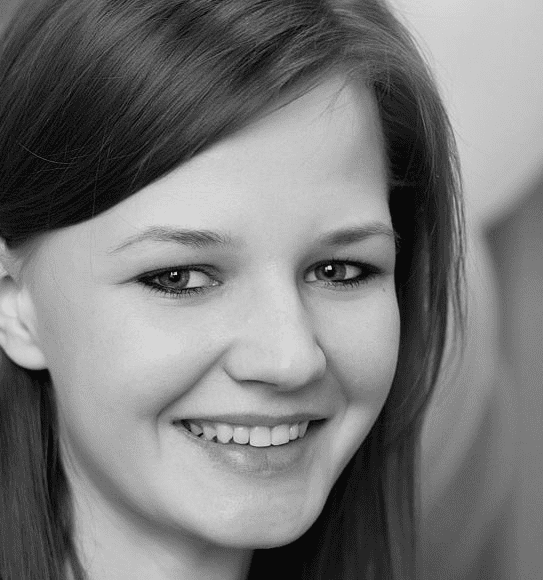 Often, customers or users ask for features, the development of which can require a lot of resources, and here we must understand precisely: do we need such functionality, is it really in demand, how much money can it bring. To understand this, evil interfaces are made in SEMrush . Sasha Ilyuschenko will tell you how they use black UX to test hypotheses in products.
Often, customers or users ask for features, the development of which can require a lot of resources, and here we must understand precisely: do we need such functionality, is it really in demand, how much money can it bring. To understand this, evil interfaces are made in SEMrush . Sasha Ilyuschenko will tell you how they use black UX to test hypotheses in products.
 Every ambitious designer needs a mentor, art director, mentor for growth, but if there is no such thing, then it is difficult to grow, because there is no one to help and to help. So you can always get such a person from cyberspace.Art Director at BeaversBrothers Daria Prokuda will talk about online art directors, outsourcing, mentoring and other dangerous terms that will come to the aid of each designer at the beginning of a thorny path.
Every ambitious designer needs a mentor, art director, mentor for growth, but if there is no such thing, then it is difficult to grow, because there is no one to help and to help. So you can always get such a person from cyberspace.Art Director at BeaversBrothers Daria Prokuda will talk about online art directors, outsourcing, mentoring and other dangerous terms that will come to the aid of each designer at the beginning of a thorny path.
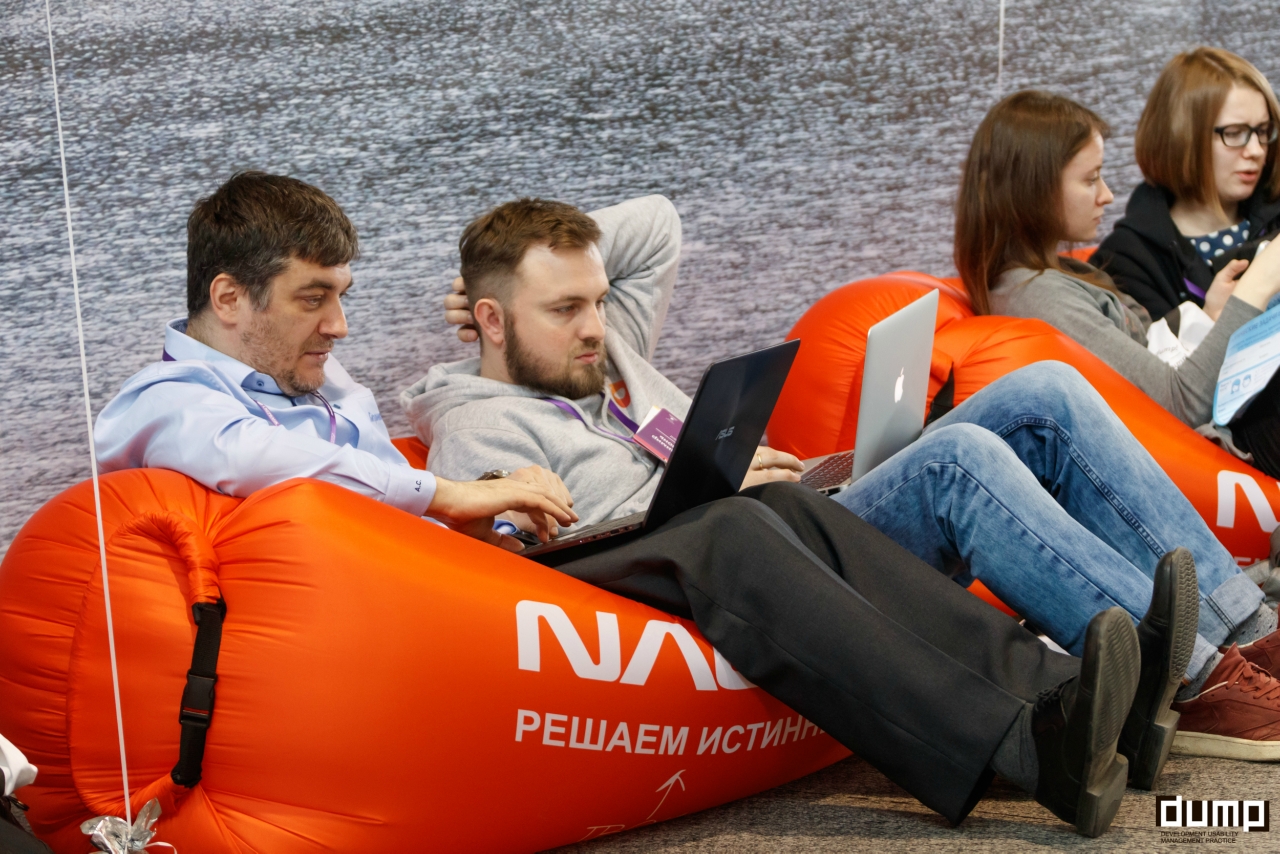
 Is it possible to make changes to the program of aging? Can a man live 150 - 200 years? Ph.D., Head of the Laboratory of Biological Systems Modeling (MIPT), Gero Research Director Peter Fedichev, will tell you how the studies of the last 10 years have changed the answers to these questions.
Is it possible to make changes to the program of aging? Can a man live 150 - 200 years? Ph.D., Head of the Laboratory of Biological Systems Modeling (MIPT), Gero Research Director Peter Fedichev, will tell you how the studies of the last 10 years have changed the answers to these questions.
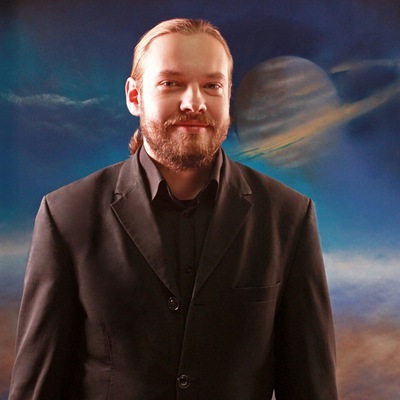 Pavel Skripnichenko ( UrFU, KantrSkrip ) will tell about the asteroid-comet hazard. How big is the danger and is the threat real at all? Can humanity protect itself from the astroid-comet hazard? What are the means of observation, prediction and opposition, and what remains to be done in order to answer the question - there will be no end of the world?
Pavel Skripnichenko ( UrFU, KantrSkrip ) will tell about the asteroid-comet hazard. How big is the danger and is the threat real at all? Can humanity protect itself from the astroid-comet hazard? What are the means of observation, prediction and opposition, and what remains to be done in order to answer the question - there will be no end of the world?
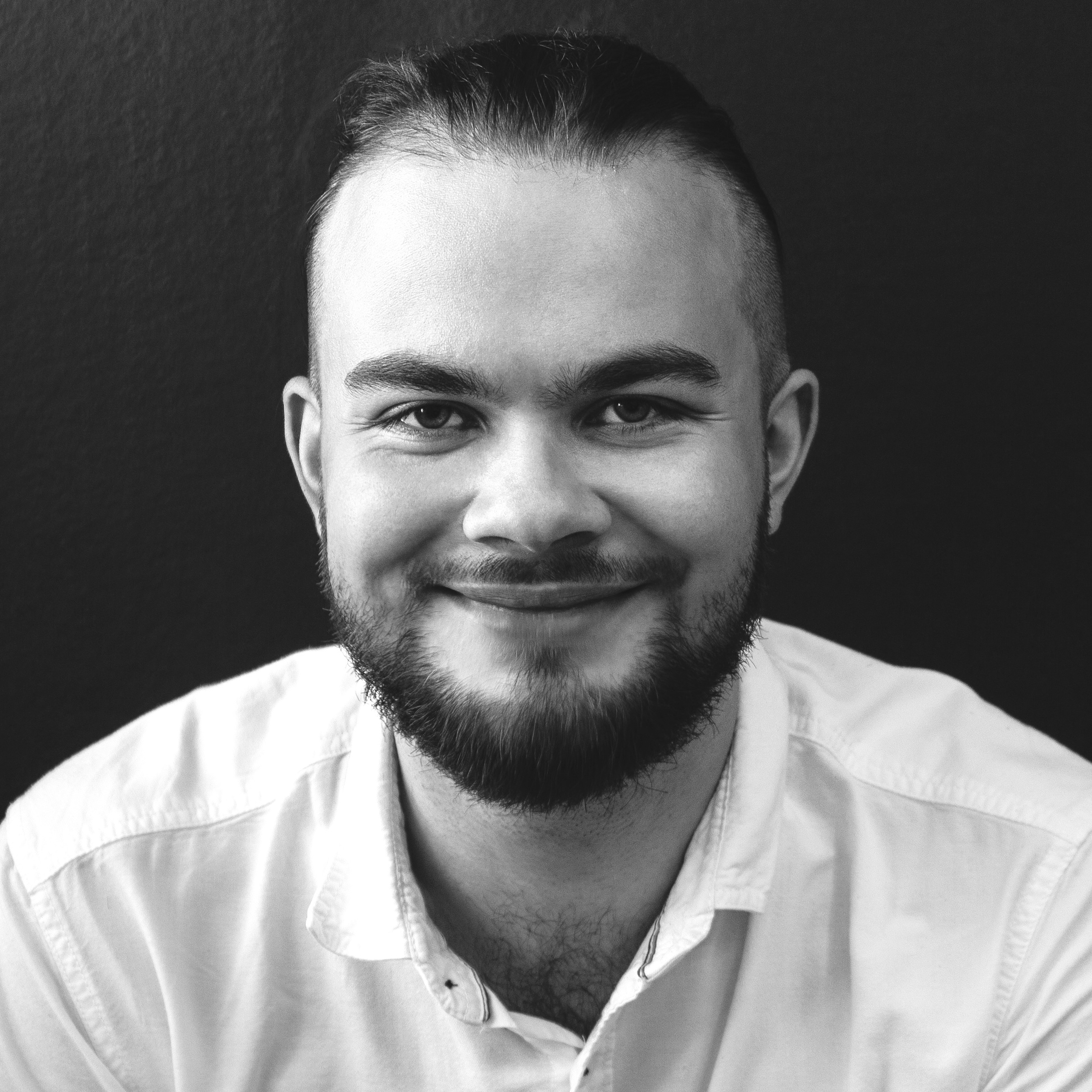 Gennady Shteh ( Naumen) tells how the transition from Natural Language Processing to Natural Language Understanding occurred, what neural networks learned in 2018, and which scientists can now automatically solve what problems with texts. For developers, Gennady will tell you how to google questions about word processing and compare the already working NLP methods with the newest ones. For business, how to include a critical approach to machine learning and see if it is needed in your business.
Gennady Shteh ( Naumen) tells how the transition from Natural Language Processing to Natural Language Understanding occurred, what neural networks learned in 2018, and which scientists can now automatically solve what problems with texts. For developers, Gennady will tell you how to google questions about word processing and compare the already working NLP methods with the newest ones. For business, how to include a critical approach to machine learning and see if it is needed in your business.
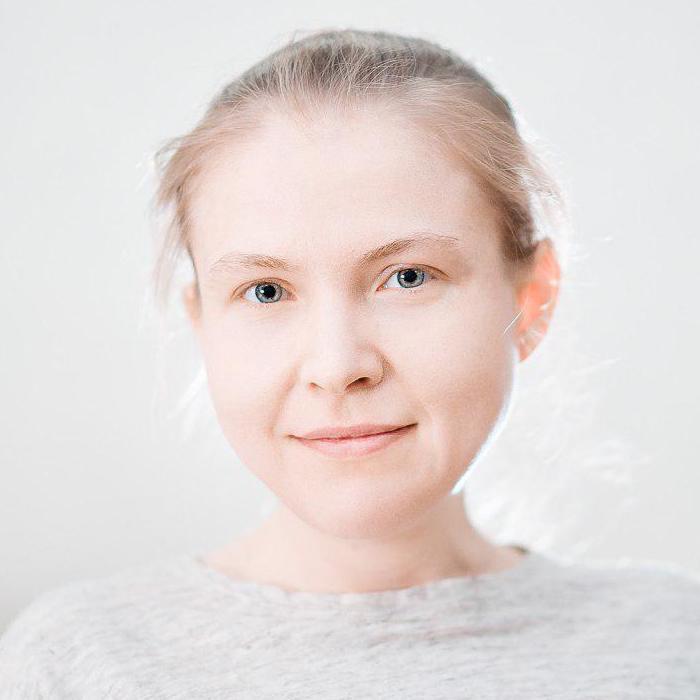 Tatyana Zobnina from Naumen will explain why and how to analyze data in the era of “big data” and machine learning. Is it possible to do with the analysis of "black boxes"? And in what tasks of analyzing interrelations between variables cannot be avoided?
Tatyana Zobnina from Naumen will explain why and how to analyze data in the era of “big data” and machine learning. Is it possible to do with the analysis of "black boxes"? And in what tasks of analyzing interrelations between variables cannot be avoided?
 Igor Mamai (Contour)he will tell the necessary minimum for understanding quantum algorithms, consider the physical principles that make quantum calculations possible, introduce the mathematical model, explain what a qubit is and what operations it is possible to perform on it. And Igor will analyze a simple algorithm that demonstrates the advantage of quantum computing over classical ones.
Igor Mamai (Contour)he will tell the necessary minimum for understanding quantum algorithms, consider the physical principles that make quantum calculations possible, introduce the mathematical model, explain what a qubit is and what operations it is possible to perform on it. And Igor will analyze a simple algorithm that demonstrates the advantage of quantum computing over classical ones.
 Nikolai Kuklin (Ceramic 3D) will share his image smoothing algorithm and how to implement it on the GPU. This is a real working implementation in a commercial program, which allowed rendering a high-quality image into a virtual reality helmet.
Nikolai Kuklin (Ceramic 3D) will share his image smoothing algorithm and how to implement it on the GPU. This is a real working implementation in a commercial program, which allowed rendering a high-quality image into a virtual reality helmet.

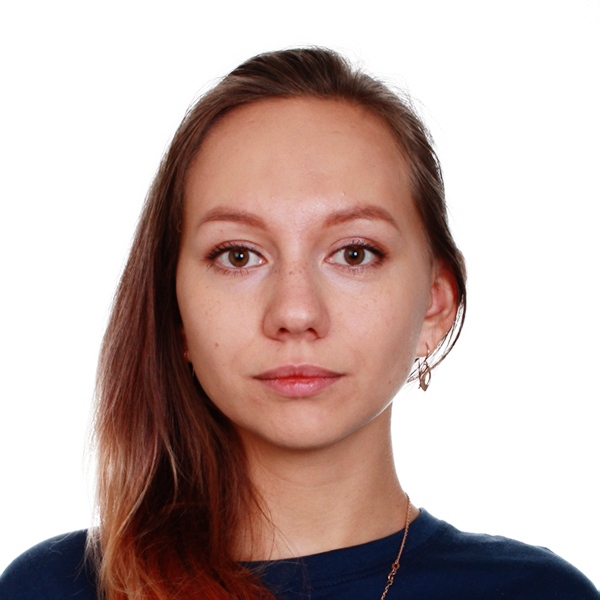 Developers at Tinkoff.ru Vladislav Blinov and Valeria Baranova using the example of a chatbot, they will understand when it is necessary to implement a state-of-the-art scientific article, in what cases it is possible to do with logistic regression, and when it is better to recall the good old prefix tree.
Developers at Tinkoff.ru Vladislav Blinov and Valeria Baranova using the example of a chatbot, they will understand when it is necessary to implement a state-of-the-art scientific article, in what cases it is possible to do with logistic regression, and when it is better to recall the good old prefix tree.
Abstracts of all reports - on the conference website .
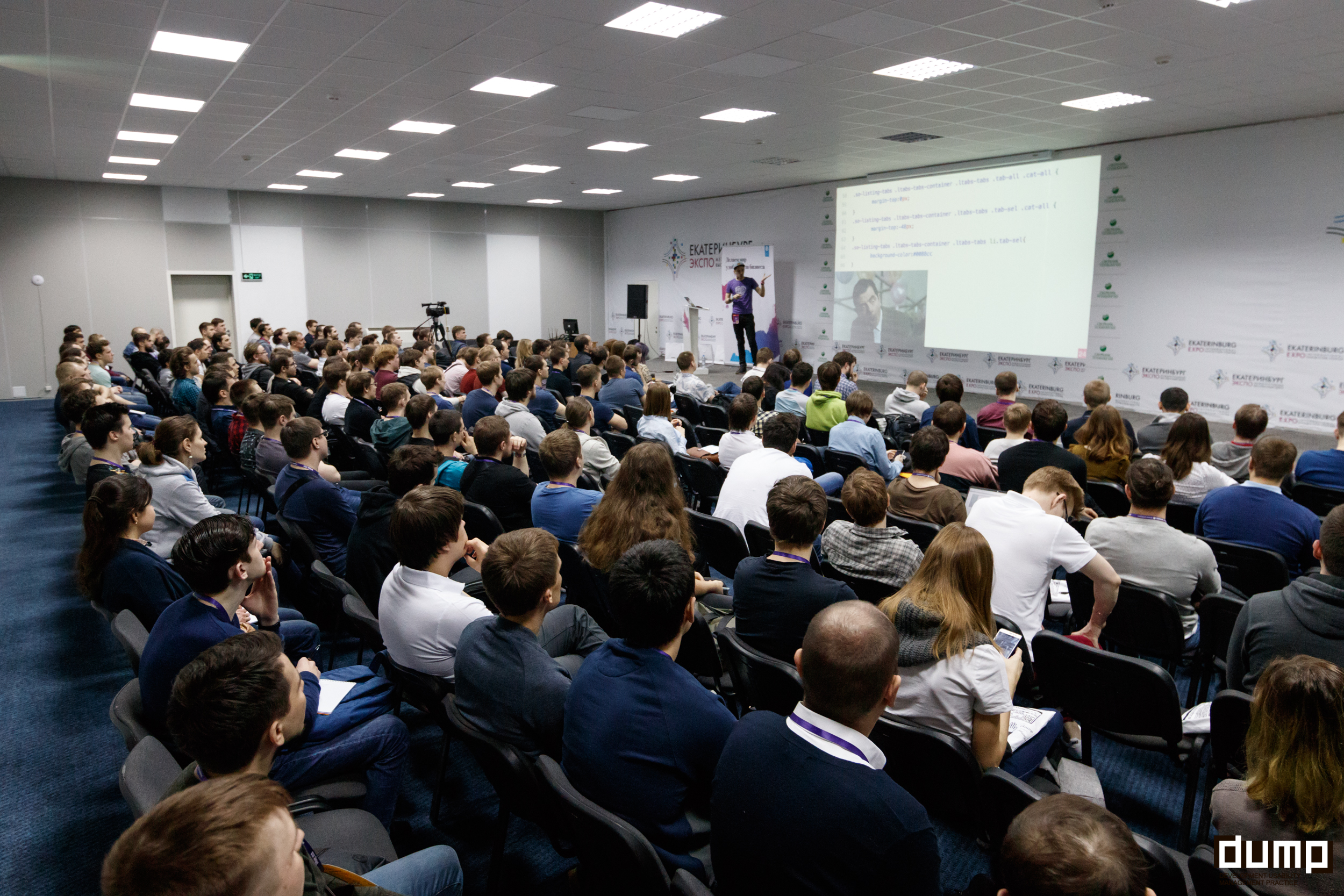
 Maxim Sosnov ( N1.RU ) will hold a JavaScript quiz. Quiz is the format of a command intellectual game where the presenter asks a question and the teams give the answers. No matter how much you know JavaScript - full NaN or real JavaScript ninja - in any case, you will learn many new and interesting things! The winning team will receive prizes :)
Maxim Sosnov ( N1.RU ) will hold a JavaScript quiz. Quiz is the format of a command intellectual game where the presenter asks a question and the teams give the answers. No matter how much you know JavaScript - full NaN or real JavaScript ninja - in any case, you will learn many new and interesting things! The winning team will receive prizes :)
 UX-Designer in SEMrush Sergey Krivoy will conduct a workshop “Problem Engineering - Design Problems”. Participants will try to practice a way to design new products, based on getting all interested parties to think not about features, but about problems that they can solve.
UX-Designer in SEMrush Sergey Krivoy will conduct a workshop “Problem Engineering - Design Problems”. Participants will try to practice a way to design new products, based on getting all interested parties to think not about features, but about problems that they can solve.
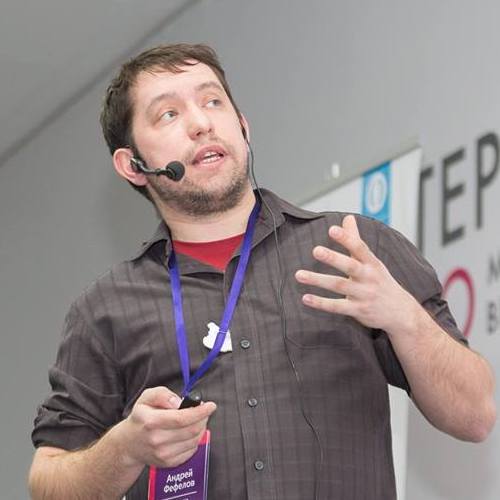 CTO in Mastery.pro Andrei Fefelov will hold a master class where he, together with the participants, will build a simple fault-tolerant cluster of 3 node postgres, patroni, consul, s3, walg, ansible nodes. After the master class, you will be able to start such a cluster from scratch using the ansible playbooks provided.
CTO in Mastery.pro Andrei Fefelov will hold a master class where he, together with the participants, will build a simple fault-tolerant cluster of 3 node postgres, patroni, consul, s3, walg, ansible nodes. After the master class, you will be able to start such a cluster from scratch using the ansible playbooks provided.
 For those who want to plunge into the world of RFP or consolidate their knowledge in this direction, Vitaly Dmitriev (404 Group) will first give a talk, and then hold a master class on reactive programming. In the program: the basics of reactive programming, flow control and subscriptions, solving real-world problems in a simple and elegant way, separation of side effects and business logic, MVC or a new look at State Management.
For those who want to plunge into the world of RFP or consolidate their knowledge in this direction, Vitaly Dmitriev (404 Group) will first give a talk, and then hold a master class on reactive programming. In the program: the basics of reactive programming, flow control and subscriptions, solving real-world problems in a simple and elegant way, separation of side effects and business logic, MVC or a new look at State Management.

Register on the conference website . Until April 1, a ticket costs 6000 ₽, then - 7000 ₽.
The conference will be held at Expo (Ekaterinburg, Expo Boulevard, 2). Before the Expo, we organize a free transfer from the center in the morning and back in the evening.

Join now!
On April 19, the DUMP conference will be held for the ninth time in Yekaterinburg. Reports will be delivered in 8 sections: Backend, Frontend, Mobile, Testing and QA, Devops, Design, Science and Management.
The final conference program with the schedule is ready. This year will feature: Nikolay Sverchkov (Evil Martians), Vadim Makeev (HTML Academy), Artemy Ryabinkov (Avito), Alexander Korotayev (Tinkoff.ru), Alexander Denisov (EPAM), Denis Malykh (Yandex), Alexey Kataev (SkyEng) , Alexey Zhukov (Contour), Grigory Savenok (MegaFon), Sergey Krivoy (SEMrush), Peter Fedichev (MIPT, Gero), Alexey Kulakov (Ridero), Anton Semenchenko (COMAQA.by) and 50 more excellent speakers. In addition to reports there will be 4 master classes.
')
There are a few days to buy a ticket for 6000 ₽, from April 1, the price rises. Under the cut all the details.

Remember these stickers? In 2016, we invented them specifically for the conference. This year they will again
DUMP-2019 program
Frontend section
 Web evangelist in HTML Academy , community leader Web standards and host of the same-name podcast, organizer of Web Standards Days, city meetings of pitercss_meetup and conference pitercss_conf Vadim Makeev will give a report on web graphics: from creation and export to optimization and insertion.
Web evangelist in HTML Academy , community leader Web standards and host of the same-name podcast, organizer of Web Standards Days, city meetings of pitercss_meetup and conference pitercss_conf Vadim Makeev will give a report on web graphics: from creation and export to optimization and insertion. In the development world, controversies on topical issues do not subside over the years: “Tabs or spaces?”, “Should we indent between brackets?”, “Single or double quotes?” Alexander Shinkevich (LOVATA) will share tools and approaches that can be used to stop arguing over trifles.
In the development world, controversies on topical issues do not subside over the years: “Tabs or spaces?”, “Should we indent between brackets?”, “Single or double quotes?” Alexander Shinkevich (LOVATA) will share tools and approaches that can be used to stop arguing over trifles. Using the example of writing games, Alexander Korotaev (Tinkoff.ru) will tell you how to draw 2D quickly, but simply, without bothering you with matrices and complex APIs. In the report, Alexander will consider the concepts of pre-rendering, shaders, and using a React-tree for fast drawing on a plane.
Using the example of writing games, Alexander Korotaev (Tinkoff.ru) will tell you how to draw 2D quickly, but simply, without bothering you with matrices and complex APIs. In the report, Alexander will consider the concepts of pre-rendering, shaders, and using a React-tree for fast drawing on a plane. Artyom Kuzvesov will consider what technologies are currently available for mobile development, visually compare how identical applications look and work, one of which is written in React Native and the other in Cordova, and tells about the strengths and weaknesses of each of the solutions.
Artyom Kuzvesov will consider what technologies are currently available for mobile development, visually compare how identical applications look and work, one of which is written in React Native and the other in Cordova, and tells about the strengths and weaknesses of each of the solutions. Frontend team leader at SKB LAB, Sergey Tsvetkov (Yekaterinburg) will give a presentation on Angular Elements: using the example of the Angular framework, it will tell you how to decompose a monolithic web application using HTML5 Web Components.
Frontend team leader at SKB LAB, Sergey Tsvetkov (Yekaterinburg) will give a presentation on Angular Elements: using the example of the Angular framework, it will tell you how to decompose a monolithic web application using HTML5 Web Components. Vitaly Dmitriev (404 Group) will reveal the basic principles of the reactive approach to programming, list useful tools and, most importantly, explain how they can help create easily expandable applications if you change your thinking when developing to reactive.
Vitaly Dmitriev (404 Group) will reveal the basic principles of the reactive approach to programming, list useful tools and, most importantly, explain how they can help create easily expandable applications if you change your thinking when developing to reactive. In articles and reports from cool developers often talk about autotests. “It's easy, it's cool,” they say. However, when you start writing them yourself, you do not feel either lightness or coolness, only pain. Frontend Lead in the company N1.RU Maxim Sosnov will teach how to write the correct tests.
In articles and reports from cool developers often talk about autotests. “It's easy, it's cool,” they say. However, when you start writing them yourself, you do not feel either lightness or coolness, only pain. Frontend Lead in the company N1.RU Maxim Sosnov will teach how to write the correct tests. Andrei Nagikh (Inetra) will tell you what a real rake they collected when porting a large application to C ++ to the browser. In the report: what are the tools and what they can; how to forward objects between JS and Wasm; what problems arise and how to solve them; what can wasm and what he cannot; how to see C ++ code in the browser debugger; how much faster wasm js.
Andrei Nagikh (Inetra) will tell you what a real rake they collected when porting a large application to C ++ to the browser. In the report: what are the tools and what they can; how to forward objects between JS and Wasm; what problems arise and how to solve them; what can wasm and what he cannot; how to see C ++ code in the browser debugger; how much faster wasm js.Backend section
 Using the example of a backend project in Evil Martians, Nikolay Sverchkov will tell you all about the practical side of working with serverless: how difficult it is to start, how much documentation and tutorials, whether there is support for generally accepted standards, how to test locally, how much it costs, what language is better to use, what stack tasks are most relevant.
Using the example of a backend project in Evil Martians, Nikolay Sverchkov will tell you all about the practical side of working with serverless: how difficult it is to start, how much documentation and tutorials, whether there is support for generally accepted standards, how to test locally, how much it costs, what language is better to use, what stack tasks are most relevant. Software Engineer in Avito Artemy Ryabinkov will talk about the advantages and disadvantages of the basic tools that are used when working with Postgres in Go. It will affect the nuances that need to be taken into account when your services run inside the Kubernetes clouds. He will also talk about Avito’s experience in providing a database of product developers.
Software Engineer in Avito Artemy Ryabinkov will talk about the advantages and disadvantages of the basic tools that are used when working with Postgres in Go. It will affect the nuances that need to be taken into account when your services run inside the Kubernetes clouds. He will also talk about Avito’s experience in providing a database of product developers. Recently, Redis 5 has a new data type - streams, this is the implementation of ideas from the popular message broker Kafka. Denis Kataev (Tinkoff.ru) will explain why streams are needed, how they differ from regular lines, what is the difference between Kafka and Redis streams, and also tells about the “pitfalls” that lie in wait for you.
Recently, Redis 5 has a new data type - streams, this is the implementation of ideas from the popular message broker Kafka. Denis Kataev (Tinkoff.ru) will explain why streams are needed, how they differ from regular lines, what is the difference between Kafka and Redis streams, and also tells about the “pitfalls” that lie in wait for you. Dmitry Tsepelev from Evil Martians will tell you how to think by graphs: in the report he will review the query language itself, tell you its advantages and disadvantages, and then present recommendations for developing a graph scheme. After the report, there is every chance to step on the rake less often when developing the scheme of its first API in GraphQL, and to understand how GraphQL differs from the usual REST API.
Dmitry Tsepelev from Evil Martians will tell you how to think by graphs: in the report he will review the query language itself, tell you its advantages and disadvantages, and then present recommendations for developing a graph scheme. After the report, there is every chance to step on the rake less often when developing the scheme of its first API in GraphQL, and to understand how GraphQL differs from the usual REST API.
 Victor Kandoba and Svetlana Zavyalova (Contour) will tell you how they automated support using speech technologies: where to start implementing speech technologies and how to sell it to business; what is the voice service, what are the tools; what to develop independently, and what is better to reuse, in what order; how to choose scenarios and conduct experiments.
Victor Kandoba and Svetlana Zavyalova (Contour) will tell you how they automated support using speech technologies: where to start implementing speech technologies and how to sell it to business; what is the voice service, what are the tools; what to develop independently, and what is better to reuse, in what order; how to choose scenarios and conduct experiments. Sergey Dolganov (Evil Martians) will talk about an alternative, “contact” approach to building APIs for dependent applications, talk about the library that they have created and are using to develop and maintain integrations. On the prototype of a solution in Ruby, as well as on work on cross-platform implementation on Rust and Go.
Sergey Dolganov (Evil Martians) will talk about an alternative, “contact” approach to building APIs for dependent applications, talk about the library that they have created and are using to develop and maintain integrations. On the prototype of a solution in Ruby, as well as on work on cross-platform implementation on Rust and Go. Yuri Kerbitskov (Ak Bars Digital Technologies) will tell you what application domains are and what they are for, explains how to work with dynamically loadable assemblies from .NET Core. It also introduces new techniques for isolating assemblies, loading / unloading and safety aspects. After the talk, you will understand better how .NET Core works under the hood.
Yuri Kerbitskov (Ak Bars Digital Technologies) will tell you what application domains are and what they are for, explains how to work with dynamically loadable assemblies from .NET Core. It also introduces new techniques for isolating assemblies, loading / unloading and safety aspects. After the talk, you will understand better how .NET Core works under the hood. Andrei Borodin and Vladimir Leskov ( Yandex ) will talk about the development of WAL-G, the PostgreSQL RDBMS on Go. They will talk about the features of the platform when interacting with a large open source database and about the community.
Andrei Borodin and Vladimir Leskov ( Yandex ) will talk about the development of WAL-G, the PostgreSQL RDBMS on Go. They will talk about the features of the platform when interacting with a large open source database and about the community. The Vostok project is the tools and practices that have proven themselves within the Contour company, which the project participants make part of OpenSource. Grigory Koshelev, Lead Software Engineer in Kontura, will tell about the part of the East that provides centralized telemetry processing.
The Vostok project is the tools and practices that have proven themselves within the Contour company, which the project participants make part of OpenSource. Grigory Koshelev, Lead Software Engineer in Kontura, will tell about the part of the East that provides centralized telemetry processing. Vitaly Semyachkin (JetStyle) will share his experience with voice assistants and smart speakers Alex and Alice: what features and features do they have, what rakes can they expect, how can they be heroically overcome and in general, how can we prepare the whole story. Using the example of an experimental case with a “smart office conversation”, Vitaly will tell you how they worked with Alice, how users were identified, tied the iron box to a specific Yandex station, and what else you would like to receive from the Yandex.Dialogia platform to become a full-fledged IoT center like Alexa.
Vitaly Semyachkin (JetStyle) will share his experience with voice assistants and smart speakers Alex and Alice: what features and features do they have, what rakes can they expect, how can they be heroically overcome and in general, how can we prepare the whole story. Using the example of an experimental case with a “smart office conversation”, Vitaly will tell you how they worked with Alice, how users were identified, tied the iron box to a specific Yandex station, and what else you would like to receive from the Yandex.Dialogia platform to become a full-fledged IoT center like Alexa.
All reports of last year’s conference can be viewed on YouTube channel.
Management Section
 Anastasia Kalashnikova, a practicing psychologist and HR in IT, will give practical recommendations on how to conduct an interview: how to evaluate, what questions to ask, and which questions to keep with you; how to predict whether a person will fit into a team; how to understand whether a candidate will be able to work independently and whether he will develop; whether to collect a reference for the candidate.
Anastasia Kalashnikova, a practicing psychologist and HR in IT, will give practical recommendations on how to conduct an interview: how to evaluate, what questions to ask, and which questions to keep with you; how to predict whether a person will fit into a team; how to understand whether a candidate will be able to work independently and whether he will develop; whether to collect a reference for the candidate. Alexey Zhukov from Kontur will tell you how they test hypotheses in Kontur before releasing products and features. In the report: customer development as a model for building a growth-team, life examples about creating and developing products for the b2b market, what a corporate entrepreneur should be able to do.
Alexey Zhukov from Kontur will tell you how they test hypotheses in Kontur before releasing products and features. In the report: customer development as a model for building a growth-team, life examples about creating and developing products for the b2b market, what a corporate entrepreneur should be able to do. The founder of the Dolgushev and Starozhilov agency , Alexey Dolgushev, based on the experience of running DevRel projects in 10 companies and 10 years of observing the IT industry, will explain how this trendy DevRel will help people learn about your company so that they want to work with you.
The founder of the Dolgushev and Starozhilov agency , Alexey Dolgushev, based on the experience of running DevRel projects in 10 companies and 10 years of observing the IT industry, will explain how this trendy DevRel will help people learn about your company so that they want to work with you. Alexey Kataev, Head of Development at SkyEng, will talk about time management for team leaders. Alexey will share his experience in the fight against procrastination, methods of automation, delegation, a bunch of checklists and life hacks on how to keep up with everything.
Alexey Kataev, Head of Development at SkyEng, will talk about time management for team leaders. Alexey will share his experience in the fight against procrastination, methods of automation, delegation, a bunch of checklists and life hacks on how to keep up with everything. Product Manager Svetlana Ayupova will tell you about the hypothesis testing cycle in SkyEng - product team No. 1 in Russia: where does the product cycle for testing hypothesis, hypothesis, decision begin, confirm the value and reduce the economy, test in battle, conclusions.
Product Manager Svetlana Ayupova will tell you about the hypothesis testing cycle in SkyEng - product team No. 1 in Russia: where does the product cycle for testing hypothesis, hypothesis, decision begin, confirm the value and reduce the economy, test in battle, conclusions. The founder of bulkina.tech, Natalya Bulkina, will talk about problem-free “problem” interviews: how to communicate with the client in a high-quality way in order to check the viability of your business idea. Natalia will also analyze the main mistakes that can lead to incorrect results.
The founder of bulkina.tech, Natalya Bulkina, will talk about problem-free “problem” interviews: how to communicate with the client in a high-quality way in order to check the viability of your business idea. Natalia will also analyze the main mistakes that can lead to incorrect results. There are a lot of training materials that tell how to delegate, and what happens if you do not. However, looking back, you can see how even the most experienced managers neglect delegation. Why it happens? How to choose between "make yourself" and give the performer? Ivan Sukhov will explain why delegating is a bad option.
There are a lot of training materials that tell how to delegate, and what happens if you do not. However, looking back, you can see how even the most experienced managers neglect delegation. Why it happens? How to choose between "make yourself" and give the performer? Ivan Sukhov will explain why delegating is a bad option.Mobile Section
 Alexander Denisov , a leading developer at EPAM Systems and the leader of the Google Developers Group from Nizhny Novgorod, will devote his report to Flutter, Google's upcoming trendy SDK. Why you should pay attention to Flutter, what has changed with the advent of this SDK, and how the selection criteria between the cross platform and the native have changed.
Alexander Denisov , a leading developer at EPAM Systems and the leader of the Google Developers Group from Nizhny Novgorod, will devote his report to Flutter, Google's upcoming trendy SDK. Why you should pay attention to Flutter, what has changed with the advent of this SDK, and how the selection criteria between the cross platform and the native have changed. Pavel Strelchenko from HeadHunter will explain why creating plug-ins in Android Studio is not at all difficult, and it can also be a very useful tool. Pavel will introduce a plug-in express course, using the example of his own experience in HH, will tell you what problems you may encounter and how to solve them.
Pavel Strelchenko from HeadHunter will explain why creating plug-ins in Android Studio is not at all difficult, and it can also be a very useful tool. Pavel will introduce a plug-in express course, using the example of his own experience in HH, will tell you what problems you may encounter and how to solve them. The report by Evgeny Krivobokov , Avito’s lead developer, will be useful to those who are tired of the slow build of the project on Android and IDE brakes. Clip lifehacks for overclocking the assembly and IDE from easy to hard. There will also be practical tips on setting up and optimizing gradle remote cache and collecting metrics on your own without buying Gradle Enterprise.
The report by Evgeny Krivobokov , Avito’s lead developer, will be useful to those who are tired of the slow build of the project on Android and IDE brakes. Clip lifehacks for overclocking the assembly and IDE from easy to hard. There will also be practical tips on setting up and optimizing gradle remote cache and collecting metrics on your own without buying Gradle Enterprise. Android Teamlead Nikita Rusin will tell how they in KODE solve the problem of using different technologies stack on several projects with the help of the “base project” - the starting point of each product, which has increased the team's efficiency. Nikita will share how to create a basic project in his company, what are the advantages and disadvantages of this approach, and what to do after you have implemented it.
Android Teamlead Nikita Rusin will tell how they in KODE solve the problem of using different technologies stack on several projects with the help of the “base project” - the starting point of each product, which has increased the team's efficiency. Nikita will share how to create a basic project in his company, what are the advantages and disadvantages of this approach, and what to do after you have implemented it. Denis Malykh, head of application development for mobile platforms from Yandex 's Yekaterinburg office, will share his invaluable experience in bringing legacy projects to life. Stumbled code and projects taken from outsourcers: how to deal with them. His examples are based on iOS development, but the experience is certainly universal and will be useful both to developers and managers.
Denis Malykh, head of application development for mobile platforms from Yandex 's Yekaterinburg office, will share his invaluable experience in bringing legacy projects to life. Stumbled code and projects taken from outsourcers: how to deal with them. His examples are based on iOS development, but the experience is certainly universal and will be useful both to developers and managers. TechLead Vladimir Tebloev will tell TechLead about the growth diseases that Sberbank has encountered in mobile development. How to cope with the fact that at some point in time a large number of people start working on a single application, and how not to lose control over the system, even if it has grown to the scale of an enterprise.
TechLead Vladimir Tebloev will tell TechLead about the growth diseases that Sberbank has encountered in mobile development. How to cope with the fact that at some point in time a large number of people start working on a single application, and how not to lose control over the system, even if it has grown to the scale of an enterprise. For iOS developers, we have a report with the intriguing title “The Dark Side of iOS Development,” which deals with the Private API. Nikolai Volosatov, senior developer of the Yandex unit in Minsk, will lift the veil over the hidden system API and, based on his team’s experience, will give recommendations on the feasibility and consequences of using it.
For iOS developers, we have a report with the intriguing title “The Dark Side of iOS Development,” which deals with the Private API. Nikolai Volosatov, senior developer of the Yandex unit in Minsk, will lift the veil over the hidden system API and, based on his team’s experience, will give recommendations on the feasibility and consequences of using it. Writing your own rules for Lint is painful: mainly because there is almost no information available on how to do this. Igor Talankin from Tinkoff will share practical tips on how to write, debug and test your own checks for Android Lint. It will also show that such checks can get rid of “stupid” bugs and shorten the testing time.
Writing your own rules for Lint is painful: mainly because there is almost no information available on how to do this. Igor Talankin from Tinkoff will share practical tips on how to write, debug and test your own checks for Android Lint. It will also show that such checks can get rid of “stupid” bugs and shorten the testing time.
Section Testing and QA
 QA Lead at 2GIS Lidiya Soshkina using the example of the 2GIS mobile application will show how their prioritization system works. The report will be useful to anyone who has not yet automated everything and is forced to cope with a large amount of manual regression testing. On the report you will receive a practical guide on the prioritization of test cases.
QA Lead at 2GIS Lidiya Soshkina using the example of the 2GIS mobile application will show how their prioritization system works. The report will be useful to anyone who has not yet automated everything and is forced to cope with a large amount of manual regression testing. On the report you will receive a practical guide on the prioritization of test cases. Anton Semenchenko , the founder of the community of specialists in the field of test automation COMAQA.BY, will explain whether the BDD approach imposes architectural restrictions on the frontend and backend test automation solutions.
Anton Semenchenko , the founder of the community of specialists in the field of test automation COMAQA.BY, will explain whether the BDD approach imposes architectural restrictions on the frontend and backend test automation solutions. Anna Bogolyubova will tell how in the Point they solve the problem of unfulfilled technical debt: when bugs and minor improvements are accumulated, but there is no time allocated for their completion, because there are always more priority tasks. This experience can be applied everywhere, in any team of any workflow, even in personal life.
Anna Bogolyubova will tell how in the Point they solve the problem of unfulfilled technical debt: when bugs and minor improvements are accumulated, but there is no time allocated for their completion, because there are always more priority tasks. This experience can be applied everywhere, in any team of any workflow, even in personal life. Technical QA lead in RealtimeBoard Anton Necheukhin will tell how to make a reliable load test that will take into account all the nuances and even those about which we still do not know. The report contains, among other things, the overcoming of technical difficulties, the experience of loading using WebSocket connections. The approach itself can be used for various load testing tools and service implementation options.
Technical QA lead in RealtimeBoard Anton Necheukhin will tell how to make a reliable load test that will take into account all the nuances and even those about which we still do not know. The report contains, among other things, the overcoming of technical difficulties, the experience of loading using WebSocket connections. The approach itself can be used for various load testing tools and service implementation options. Ivan Shelomentsev, Testing Specialist in the Contour, will talk about how to load the CPU at nominal load using NUnit 3.10.1. instead of buying expensive iron, and explain the main points that should be considered when testing concurrency.
Ivan Shelomentsev, Testing Specialist in the Contour, will talk about how to load the CPU at nominal load using NUnit 3.10.1. instead of buying expensive iron, and explain the main points that should be considered when testing concurrency. In the days of DevOps, the roles of testers and QA specialists are not entirely clear. Alexey Lapaev (Tinkoff.ru) will look into the future of the profession and will think about how to approach the issue of quality so as not to drop out of the rhythm of development of the development sphere. Alexey will share his ideas where to evolve from a conditional tester.
In the days of DevOps, the roles of testers and QA specialists are not entirely clear. Alexey Lapaev (Tinkoff.ru) will look into the future of the profession and will think about how to approach the issue of quality so as not to drop out of the rhythm of development of the development sphere. Alexey will share his ideas where to evolve from a conditional tester. Vitaly Roshchupkin ( Contour ) will tell you how they write all autotests before the release of features (without autotesters). Vitaly will explain what the tester needs to do in order to develop such a development culture. And what can be done to destroy it. Technomyas will not be a report on psychology and communication with people.
Vitaly Roshchupkin ( Contour ) will tell you how they write all autotests before the release of features (without autotesters). Vitaly will explain what the tester needs to do in order to develop such a development culture. And what can be done to destroy it. Technomyas will not be a report on psychology and communication with people. Section program director Dmitry Yakin will hold managerial fights. Management fights are a format that gives you the opportunity to rehearse episodes: how to talk to your boss about salary increases or how to abandon your boring task. We will lose several episodes and consider what was necessary to say and what was superfluous. You can participate or just watch.
Section program director Dmitry Yakin will hold managerial fights. Management fights are a format that gives you the opportunity to rehearse episodes: how to talk to your boss about salary increases or how to abandon your boring task. We will lose several episodes and consider what was necessary to say and what was superfluous. You can participate or just watch.Devops section
 Ruslan Serkin (DataArt) will tell you what serverless is and eat it, discuss the main problems you may encounter during development, share your experience and practices on how to avoid major mistakes when starting development using serverless technologies.
Ruslan Serkin (DataArt) will tell you what serverless is and eat it, discuss the main problems you may encounter during development, share your experience and practices on how to avoid major mistakes when starting development using serverless technologies. Director of the Ekaterinburg Web Studio Flag Mikhail Radionov will tell you how and why they wrote their CI in the Laravel ecosystem to work with many different small projects. And answer the question "is it worth it to write your CI for a web studio?"
Director of the Ekaterinburg Web Studio Flag Mikhail Radionov will tell you how and why they wrote their CI in the Laravel ecosystem to work with many different small projects. And answer the question "is it worth it to write your CI for a web studio?" The Contour company Elasticsearch has been deployed for a very long time, and the amount of data in it approaches one petabyte. Engineer programmer in Kontur Vladimir Leela will tell you why they love elastic, how it helps the company and why you should love it. Vladimir will tell you about the organization of the process, transport of logs, the technical details of building such a cluster, frequent errors, and about the benefits of all this.
The Contour company Elasticsearch has been deployed for a very long time, and the amount of data in it approaches one petabyte. Engineer programmer in Kontur Vladimir Leela will tell you why they love elastic, how it helps the company and why you should love it. Vladimir will tell you about the organization of the process, transport of logs, the technical details of building such a cluster, frequent errors, and about the benefits of all this. Evgeny Fomenko ( Megafon ) will tell about the experience of changing the implementation approach: from releases to fast track. In the report: implementation in the conditions of large-scale architectural transformation, high-speed implementation of changes in the distributed infrastructure of the company, ways to achieve a rapid implementation cycle, quality and automation of testing under continuous implementation, the impact of continuous deployment on operational performance.
Evgeny Fomenko ( Megafon ) will tell about the experience of changing the implementation approach: from releases to fast track. In the report: implementation in the conditions of large-scale architectural transformation, high-speed implementation of changes in the distributed infrastructure of the company, ways to achieve a rapid implementation cycle, quality and automation of testing under continuous implementation, the impact of continuous deployment on operational performance. Viktor Eremchenko ( Miro ) will tell how they approached the process of continuous delivery, how these approaches helped reduce the number of server release rollbacks and how it helps teams quickly and conveniently deliver their functionality to production. The report contains, among other things, real examples of the use of various tools and technical details of the CI / CD process.
Viktor Eremchenko ( Miro ) will tell how they approached the process of continuous delivery, how these approaches helped reduce the number of server release rollbacks and how it helps teams quickly and conveniently deliver their functionality to production. The report contains, among other things, real examples of the use of various tools and technical details of the CI / CD process.
Design Section
 Gregory Savenok , head of user experience and interfaces at MegaFon, will tell you how to present solutions to designers, protect solutions from the first time and not receive comments about fonts, colors and buttons. Gregory will teach how to work out the objections of the customer, using examples he will show how far changes can take and how this can be avoided. The report will be useful for designers and managers.
Gregory Savenok , head of user experience and interfaces at MegaFon, will tell you how to present solutions to designers, protect solutions from the first time and not receive comments about fonts, colors and buttons. Gregory will teach how to work out the objections of the customer, using examples he will show how far changes can take and how this can be avoided. The report will be useful for designers and managers. JetStyle director and product director at Ridero Alexey Kulakov believes that feedback is the king of skill, this is the best thing you can learn in life. It can not stop pumping, with it, everything gets better. At the conference, Alexey will teach how to give and receive feedback to a designer.
JetStyle director and product director at Ridero Alexey Kulakov believes that feedback is the king of skill, this is the best thing you can learn in life. It can not stop pumping, with it, everything gets better. At the conference, Alexey will teach how to give and receive feedback to a designer. MacPaw art director Dmitry Novikov will tell you how and why you need animation in interfaces, how to avoid mistakes when creating, how to design animations in the simplest way and how to give it to the developer.
MacPaw art director Dmitry Novikov will tell you how and why you need animation in interfaces, how to avoid mistakes when creating, how to design animations in the simplest way and how to give it to the developer. You came to work as a designer in a long-existing product. How to care for it, what problems to solve in the first place and are the best solutions always lying in the interface plane? Alena Kirdina (Evil Martians) will tell you how they have put eBay up for business for a year, guided not by interviews, analytics and sudden insights ... but by a list of errors in its usage scenarios.
You came to work as a designer in a long-existing product. How to care for it, what problems to solve in the first place and are the best solutions always lying in the interface plane? Alena Kirdina (Evil Martians) will tell you how they have put eBay up for business for a year, guided not by interviews, analytics and sudden insights ... but by a list of errors in its usage scenarios. Alexandra Rudenko (Service Design Bureau) will tell with what research to build a Customer Experience Map, what tasks of designers it solves, and show how you can cover the entire customer path and transitions between online and offline on one map to take into account client contexts when developing products .
Alexandra Rudenko (Service Design Bureau) will tell with what research to build a Customer Experience Map, what tasks of designers it solves, and show how you can cover the entire customer path and transitions between online and offline on one map to take into account client contexts when developing products . Konstantin Ostroukhov (JetStyle) will tell you what a generative design is and with what tools it is created. Based on examples from your instagram project, the generative design will explain the techniques that it uses. For example, how to use the code to make kinetic typography, interactive animations and generative graphics from a particle system to create patterns.
Konstantin Ostroukhov (JetStyle) will tell you what a generative design is and with what tools it is created. Based on examples from your instagram project, the generative design will explain the techniques that it uses. For example, how to use the code to make kinetic typography, interactive animations and generative graphics from a particle system to create patterns. Anastasia Shapovalova (Naumen) will analyze the ways of analyzing clients and explain how it is easiest to peek at their work without developers and sophisticated tools. And also tells you how to start a redesign without a designer, to screw up a little, but in the end stay on a horse and bring back a forgotten feature to life.
Anastasia Shapovalova (Naumen) will analyze the ways of analyzing clients and explain how it is easiest to peek at their work without developers and sophisticated tools. And also tells you how to start a redesign without a designer, to screw up a little, but in the end stay on a horse and bring back a forgotten feature to life. Often, customers or users ask for features, the development of which can require a lot of resources, and here we must understand precisely: do we need such functionality, is it really in demand, how much money can it bring. To understand this, evil interfaces are made in SEMrush . Sasha Ilyuschenko will tell you how they use black UX to test hypotheses in products.
Often, customers or users ask for features, the development of which can require a lot of resources, and here we must understand precisely: do we need such functionality, is it really in demand, how much money can it bring. To understand this, evil interfaces are made in SEMrush . Sasha Ilyuschenko will tell you how they use black UX to test hypotheses in products. Every ambitious designer needs a mentor, art director, mentor for growth, but if there is no such thing, then it is difficult to grow, because there is no one to help and to help. So you can always get such a person from cyberspace.Art Director at BeaversBrothers Daria Prokuda will talk about online art directors, outsourcing, mentoring and other dangerous terms that will come to the aid of each designer at the beginning of a thorny path.
Every ambitious designer needs a mentor, art director, mentor for growth, but if there is no such thing, then it is difficult to grow, because there is no one to help and to help. So you can always get such a person from cyberspace.Art Director at BeaversBrothers Daria Prokuda will talk about online art directors, outsourcing, mentoring and other dangerous terms that will come to the aid of each designer at the beginning of a thorny path.
Science Section
 Is it possible to make changes to the program of aging? Can a man live 150 - 200 years? Ph.D., Head of the Laboratory of Biological Systems Modeling (MIPT), Gero Research Director Peter Fedichev, will tell you how the studies of the last 10 years have changed the answers to these questions.
Is it possible to make changes to the program of aging? Can a man live 150 - 200 years? Ph.D., Head of the Laboratory of Biological Systems Modeling (MIPT), Gero Research Director Peter Fedichev, will tell you how the studies of the last 10 years have changed the answers to these questions. Pavel Skripnichenko ( UrFU, KantrSkrip ) will tell about the asteroid-comet hazard. How big is the danger and is the threat real at all? Can humanity protect itself from the astroid-comet hazard? What are the means of observation, prediction and opposition, and what remains to be done in order to answer the question - there will be no end of the world?
Pavel Skripnichenko ( UrFU, KantrSkrip ) will tell about the asteroid-comet hazard. How big is the danger and is the threat real at all? Can humanity protect itself from the astroid-comet hazard? What are the means of observation, prediction and opposition, and what remains to be done in order to answer the question - there will be no end of the world? Gennady Shteh ( Naumen) tells how the transition from Natural Language Processing to Natural Language Understanding occurred, what neural networks learned in 2018, and which scientists can now automatically solve what problems with texts. For developers, Gennady will tell you how to google questions about word processing and compare the already working NLP methods with the newest ones. For business, how to include a critical approach to machine learning and see if it is needed in your business.
Gennady Shteh ( Naumen) tells how the transition from Natural Language Processing to Natural Language Understanding occurred, what neural networks learned in 2018, and which scientists can now automatically solve what problems with texts. For developers, Gennady will tell you how to google questions about word processing and compare the already working NLP methods with the newest ones. For business, how to include a critical approach to machine learning and see if it is needed in your business. Tatyana Zobnina from Naumen will explain why and how to analyze data in the era of “big data” and machine learning. Is it possible to do with the analysis of "black boxes"? And in what tasks of analyzing interrelations between variables cannot be avoided?
Tatyana Zobnina from Naumen will explain why and how to analyze data in the era of “big data” and machine learning. Is it possible to do with the analysis of "black boxes"? And in what tasks of analyzing interrelations between variables cannot be avoided? Igor Mamai (Contour)he will tell the necessary minimum for understanding quantum algorithms, consider the physical principles that make quantum calculations possible, introduce the mathematical model, explain what a qubit is and what operations it is possible to perform on it. And Igor will analyze a simple algorithm that demonstrates the advantage of quantum computing over classical ones.
Igor Mamai (Contour)he will tell the necessary minimum for understanding quantum algorithms, consider the physical principles that make quantum calculations possible, introduce the mathematical model, explain what a qubit is and what operations it is possible to perform on it. And Igor will analyze a simple algorithm that demonstrates the advantage of quantum computing over classical ones. Nikolai Kuklin (Ceramic 3D) will share his image smoothing algorithm and how to implement it on the GPU. This is a real working implementation in a commercial program, which allowed rendering a high-quality image into a virtual reality helmet.
Nikolai Kuklin (Ceramic 3D) will share his image smoothing algorithm and how to implement it on the GPU. This is a real working implementation in a commercial program, which allowed rendering a high-quality image into a virtual reality helmet.
 Developers at Tinkoff.ru Vladislav Blinov and Valeria Baranova using the example of a chatbot, they will understand when it is necessary to implement a state-of-the-art scientific article, in what cases it is possible to do with logistic regression, and when it is better to recall the good old prefix tree.
Developers at Tinkoff.ru Vladislav Blinov and Valeria Baranova using the example of a chatbot, they will understand when it is necessary to implement a state-of-the-art scientific article, in what cases it is possible to do with logistic regression, and when it is better to recall the good old prefix tree.Abstracts of all reports - on the conference website .

Master Classes
 Maxim Sosnov ( N1.RU ) will hold a JavaScript quiz. Quiz is the format of a command intellectual game where the presenter asks a question and the teams give the answers. No matter how much you know JavaScript - full NaN or real JavaScript ninja - in any case, you will learn many new and interesting things! The winning team will receive prizes :)
Maxim Sosnov ( N1.RU ) will hold a JavaScript quiz. Quiz is the format of a command intellectual game where the presenter asks a question and the teams give the answers. No matter how much you know JavaScript - full NaN or real JavaScript ninja - in any case, you will learn many new and interesting things! The winning team will receive prizes :) UX-Designer in SEMrush Sergey Krivoy will conduct a workshop “Problem Engineering - Design Problems”. Participants will try to practice a way to design new products, based on getting all interested parties to think not about features, but about problems that they can solve.
UX-Designer in SEMrush Sergey Krivoy will conduct a workshop “Problem Engineering - Design Problems”. Participants will try to practice a way to design new products, based on getting all interested parties to think not about features, but about problems that they can solve. CTO in Mastery.pro Andrei Fefelov will hold a master class where he, together with the participants, will build a simple fault-tolerant cluster of 3 node postgres, patroni, consul, s3, walg, ansible nodes. After the master class, you will be able to start such a cluster from scratch using the ansible playbooks provided.
CTO in Mastery.pro Andrei Fefelov will hold a master class where he, together with the participants, will build a simple fault-tolerant cluster of 3 node postgres, patroni, consul, s3, walg, ansible nodes. After the master class, you will be able to start such a cluster from scratch using the ansible playbooks provided. For those who want to plunge into the world of RFP or consolidate their knowledge in this direction, Vitaly Dmitriev (404 Group) will first give a talk, and then hold a master class on reactive programming. In the program: the basics of reactive programming, flow control and subscriptions, solving real-world problems in a simple and elegant way, separation of side effects and business logic, MVC or a new look at State Management.
For those who want to plunge into the world of RFP or consolidate their knowledge in this direction, Vitaly Dmitriev (404 Group) will first give a talk, and then hold a master class on reactive programming. In the program: the basics of reactive programming, flow control and subscriptions, solving real-world problems in a simple and elegant way, separation of side effects and business logic, MVC or a new look at State Management.
check in
Register on the conference website . Until April 1, a ticket costs 6000 ₽, then - 7000 ₽.
The conference will be held at Expo (Ekaterinburg, Expo Boulevard, 2). Before the Expo, we organize a free transfer from the center in the morning and back in the evening.

Join now!
Source: https://habr.com/ru/post/445714/
All Articles